Foodwise Spring
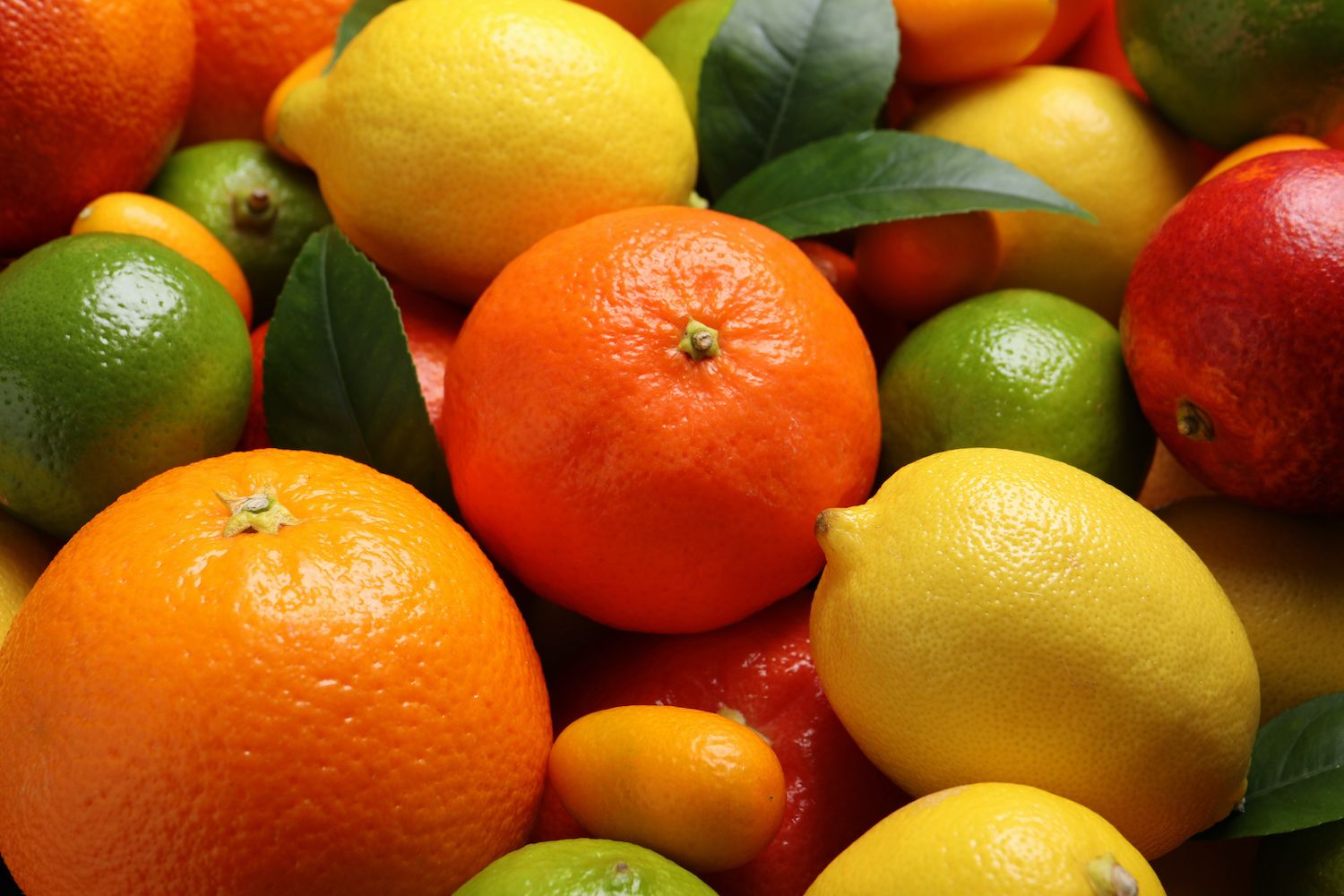
Welcome to edition #61 of Foodwise!
Spring has sprung and with the promise of warmer days ahead, so too comes a reminder that warmer weather brings an increased risk to food safety.
We hope this addition of Foodwise helps inform you of how best to build a culture of food safety for your business, a foundation that will ensure you survive and thrive!
It has been wonderful to be back on the road meeting face to face with stakeholders this year, albeit with a new resurgence of COVID cases of late, these opportunities have been conducted with great caution in line with public health advice and we encourage you to continue to do the same in order to protect our communities and food industries.
The upcoming Foodservice Australia Show will no doubt be a highlight of the 2022 food industry calendar and an event the NSW Food Authority welcomes as a chance to engage with various industry sectors to support a united effort to reduce foodborne illness.
Please enjoy this edition of Foodwise. As always, we welcome your comments and feedback, so please feel free to drop us a line with any suggestions.
For more information visit the NSW Food Authority website, email food.contact@dpi.nsw.gov.au or call the Helpline on 1300 552 406.
Find us at Foodservice Australia
Foodservice Australia Show is being held from 23-25 October at the International Convention Centre in Sydney.
Seen as the premier event for the food and hospitality industry, it is expected to attract over 10,000 professionals from the foodservice, hospitality and retail sectors, including aged care, airlines, defence forces and hospitals.
Demonstrating their commitment to food safety, the NSW Food Authority will join over 450 exhibitors, and will be on hand to answer all your questions about the role we play in regulating and measuring food safety across the food industry in NSW, and how our activities can aid in driving the reputational benefits characterised by safe, high-quality food, fewer food incidents and increased consumer confidence in food safety and purchasing choices.
Come and visit us at stand E52, right near the Seminar Theatre, we look forward to meeting you.
For more information about Foodservice Australia, including the program detailing the competitions, seminars and workshops, visit Foodservice Australia. Entry to this trade only event is free.

Lumpy skin disease (LSD) update
Lumpy skin disease (LSD) is a serious disease of cattle and water buffalo that is mainly spread by biting insects including flies, mosquitos and midges, as well as by ticks.
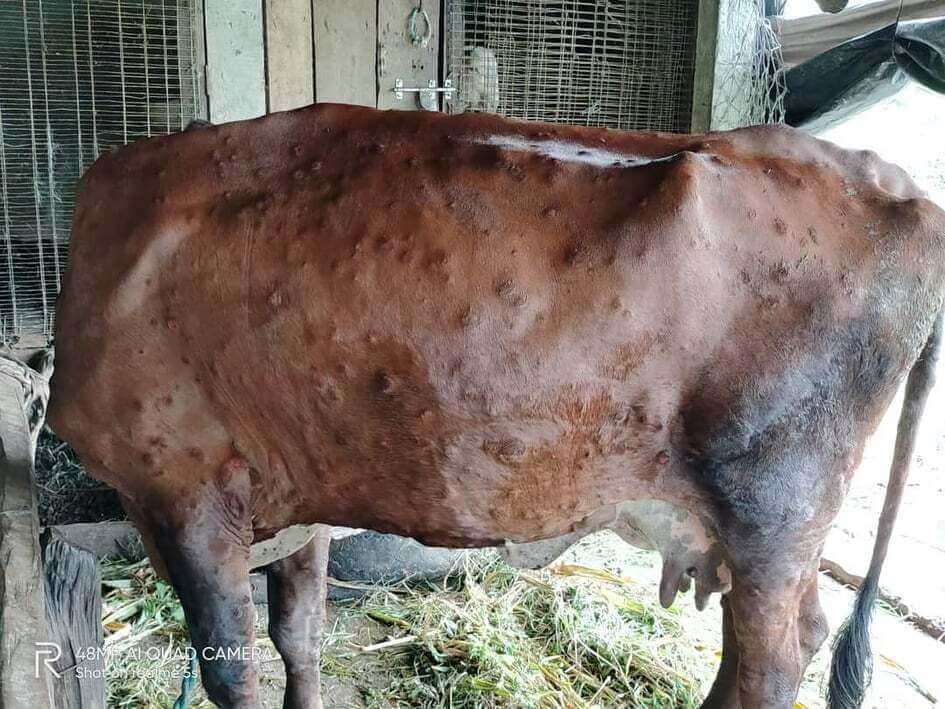
Cow with Lumpy Skin disease. Attribute: DAWE
Cow with Lumpy Skin disease. Attribute: DAWE
LSD has never occurred in Australia, and we are currently free from this disease. It is an emerging biosecurity threat as it continues to spread through Asia, with Indonesia reporting an outbreak in March 2022.
There is no threat to food safety or human health from this disease.
LSD would have severe negative animal welfare, economic and trade impacts.
The Australian Government is assisting Indonesia with the procurement of LSD vaccines and providing technical support as required. Stronger border measures are also in place.
The Department of Agriculture, Fisheries and Forestry is working collaboratively with state and territory governments and industry partners to develop and implement a National LSD Action Plan to ensure Australia is well prepared for an incursion.
It is critical that cattle producers are aware of what LSD looks like (visit the DPI website for more information on clinical signs) and report any suspicion of the disease in cattle to the Emergency Animal Disease Watch Hotline on 1800 675 888 or their local veterinarian immediately.
All livestock owners should have stringent biosecurity measures in place on their property, including accurate records of livestock movement. To access free farm biosecurity advice and resources visit farmbiosecurity.com.au
In this video Australia’s Chief Veterinary Officer, Dr Mark Schipp, provides information about Lumpy skin disease, including its potential impacts and the need for disease vigilance.
More information about lumpy skin disease is at agriculture.gov.au/lumpyskin.
Posh Foods bags a big win for their Pate
The NSW Food Authority’s annual sponsorship of the Royal Agricultural Society of NSW Sydney Royal Fine Food Show is an opportunity for to acknowledge and thank producers in NSW and further afield for their outstanding contribution towards NSW and Australia’s world-renowned food industry.
The Sydney Royal Fine Food Show Champions for 2022 were recently announced at the Sydney Royal Taste of Excellence event, and the Food Authority were on hand to present the winner of the sponsored Champion Other Charcuterie Product Award to Posh Foods for their 'Posh Pate Pistachio & Brandy 150g’ exhibit’
The NSW Food Authority is a proud sponsor of the event which recognises and celebrates excellence and innovation in the fine food industry.
To view the full results, visit the Sydney Royal Fine Food Results.
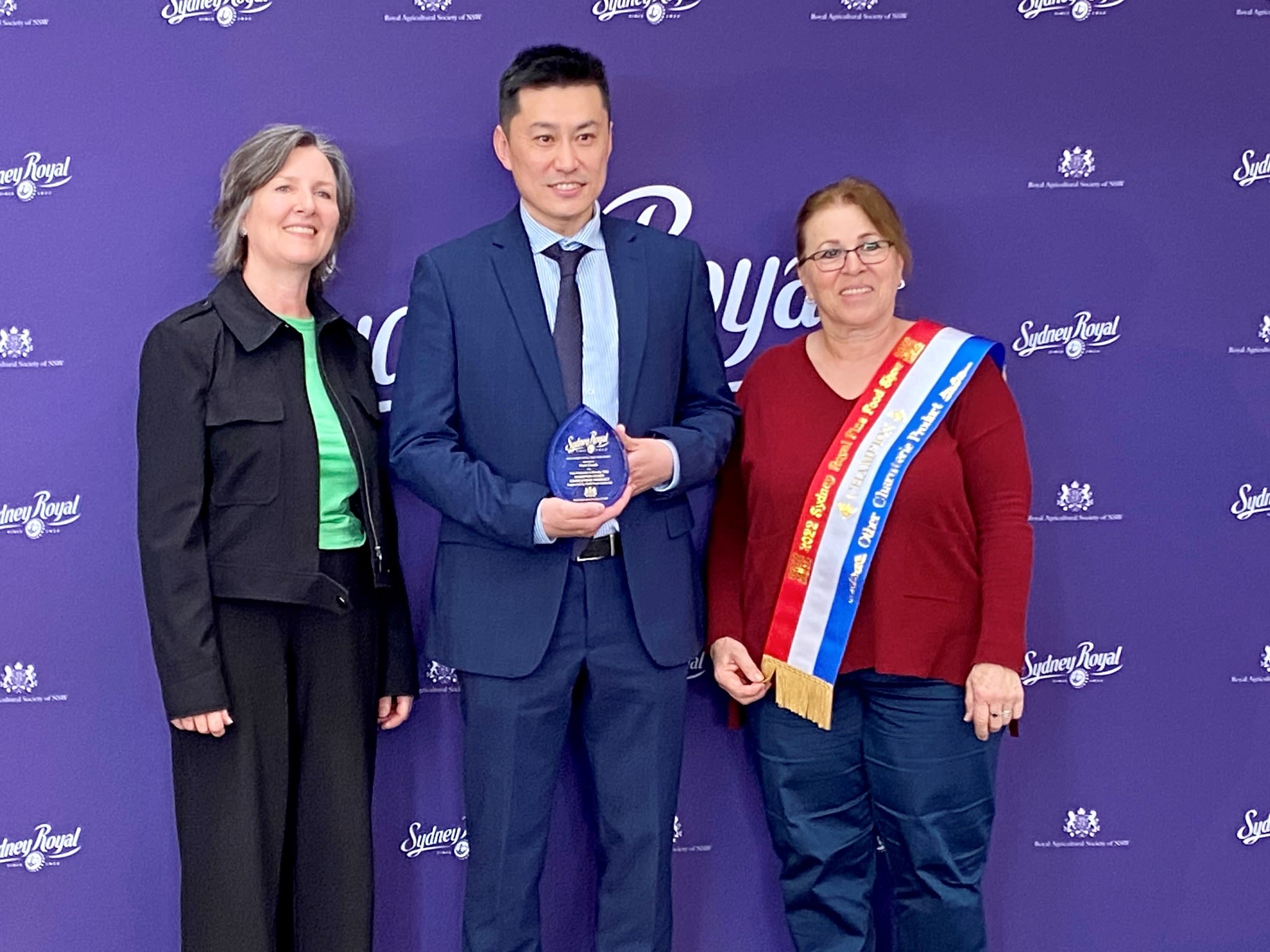
The NSW Food Authority was proud to present the Award to Posh Foods
The NSW Food Authority was proud to present the Award to Posh Foods

Champion Other Charcuterie Product Award to Posh Foods for their 'Posh Pate Pistachio & Brandy 150g’ exhibit’
Champion Other Charcuterie Product Award to Posh Foods for their 'Posh Pate Pistachio & Brandy 150g’ exhibit’
Foot-and-mouth disease (FMD) update
Australia remains free of FMD.
Australia's biosecurity system is recognised worldwide as strong, bringing benefits to our economy, our unique environment, and our way of life.
In May 2022, an outbreak of FMD was reported in cattle in Indonesia and has since spread to Bali. The NSW Government has been working in partnership with the Australian Government Department of Agriculture, Fisheries and Forestry (the Department), and all other Australian Government agencies, state and territory governments, industries and the broader community on preparedness activities to ensure our current FMD-free status is maintained.
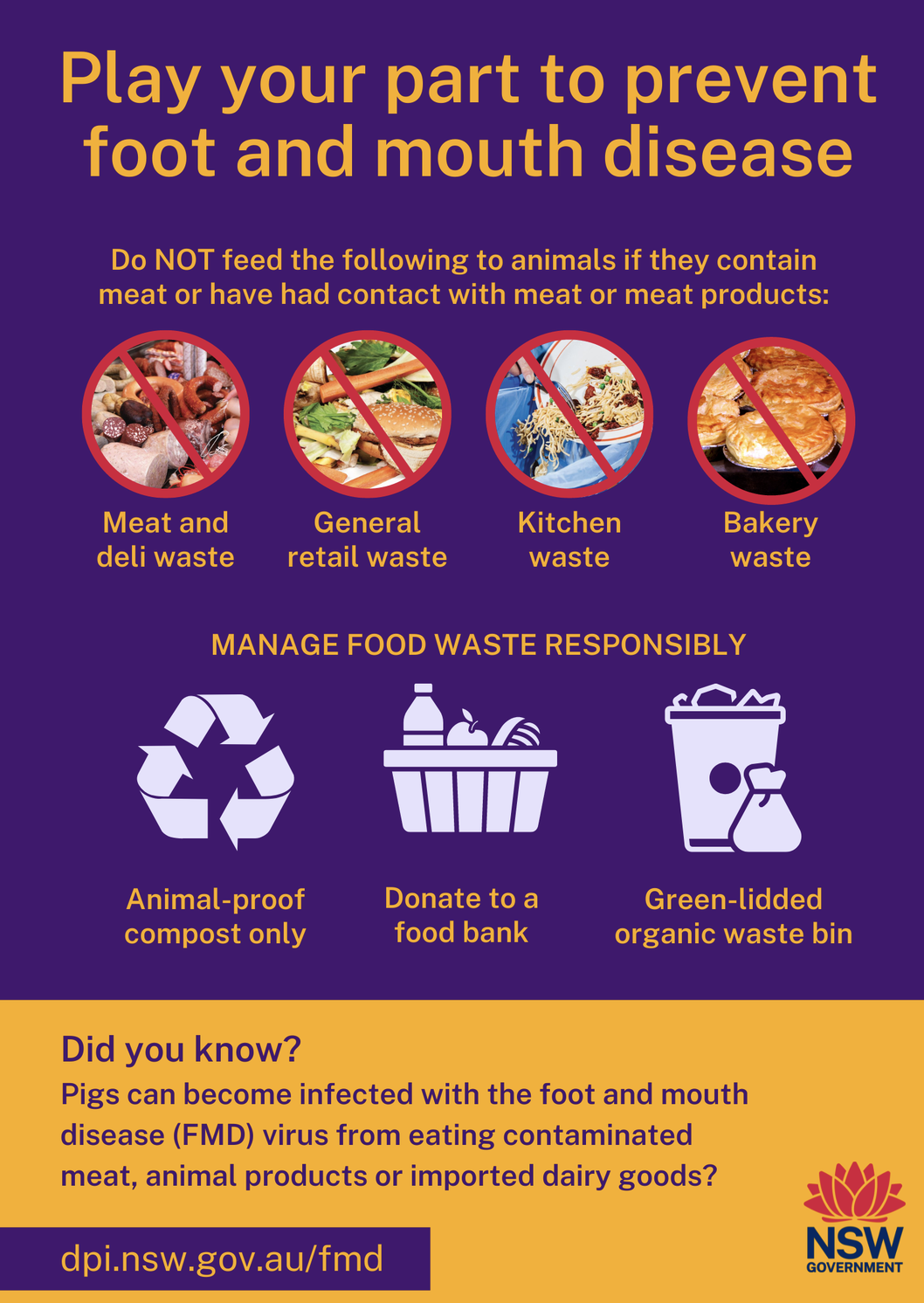
The NSW Government is participating in a dedicated FMD Taskforce – led by the Department, to provide national leadership and to contribute to whole-of-government and collaborative efforts to strengthen FMD preparedness.
FMD is not of concern for human health or food safety, it is a contagious viral disease that affects cloven-hoofed animals including cattle, sheep, goats, pigs, camelids and deer.
It is recommended that people who have been in contact with FMD-infected animals or infected areas DO NOT visit Australian farms, livestock facilities, or handle livestock for at least 7 days after returning to Australia.
FMD is most likely to enter Australia through illegal imports of meat, meat products and dairy products infected with the FMD virus and the subsequent illegal feeding of these products (prohibited pig feed or swill) to pigs.
All livestock owners should have stringent biosecurity measures in place, including accurate records of livestock movement.
It is critical that all livestock owners know what FMD looks like, and that they check their animals regularly. If you see any unusual signs of disease or death, or suspect FMD in livestock, it must be reported immediately to the Emergency Animal Disease Watch Hotline on 1800 675 888 or your local veterinarian.
The best chance of being able to contain and eradicate this disease, will rely on early detection and reporting. Don’t hesitate to report. A false alarm is better than the disease spreading uncontained.
More information on FMD, including information for livestock producers and veterinarians, is available on the DPI website.
Other important information is also available via links below:
- For latest national updates on FMD, visit the Australian Government website.
- For advice on what to do if you suspect an emergency disease in your animals, visit the Outbreak website.
- Visit the Farm Biosecurity website to access the Biosecurity toolkit and ensure you have all required biosecurity measures in place, and your farm is prepared in the event of an outbreak.
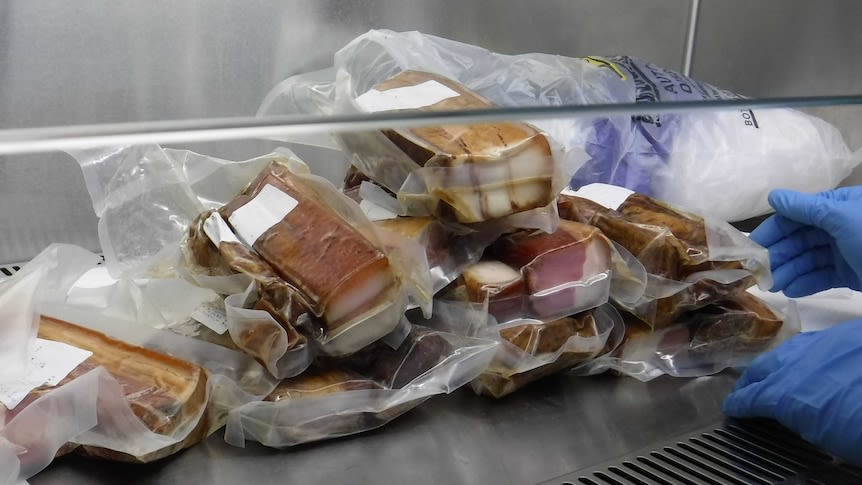
Allergen Bureau launches new allergen resource for industry
The Allergen Bureau recently launched Assessing Agricultural Cross Contact Guide 2022 (the Guide) for the food industry.
The Guide, and the Raw Material Risk Matrix Questionnaire can assist industry to identify and manage agricultural cross contact risk.
Relevant to all areas of the food industry, the Guide was designed to be a useful tool for growers, primary producers, food ingredient manufacturers, importers, suppliers, food business operators, and importers of packaged foods.
To access these resources, and for more information about them, visit the Allergen Bureau website.
Annual Food Testing Report 2021 - 2022
The NSW Food Authority’s primary objective is to provide consumers in NSW with safe and correctly labelled food.
To support this objective, the Food Authority regularly conducts testing of food products to ensure compliance with regulatory requirements, as part of foodborne illness investigations and to gather information to identify and respond to food safety issues. The Food Authority also undertakes scientific surveillance projects to identify and better understand food safety issues and risks in NSW. The data obtained in these surveillance projects allows the Food Authority to identify and respond to key food safety issues and develop systems and processes to manage the prevention of foodborne illness effectively and maintain food safety.
The Food Authority’s primary testing provider, BVAQ (formerly DTS Food Assurance (DTS) provides a range of testing services, including microbiological, chemical, foreign object identification, allergen contamination and nutritional composition.
At the end of each financial year, the Food Authority reports on the testing conducted by BVAQ and by other laboratories. Other laboratories used in 2021-2022 included Elizabeth Macarthur Agricultural Institute (EMAI) for microbiological analyses and NSW Health Pathology for serotyping and whole genome sequencing.
The report shows that a total of 3,025 samples were submitted for testing. The diversity of foods analysed included meat, seafood, shellfish, dairy, plant products, packaged food, eggs and environmental samples (e.g. swabs). Most samples were submitted for multiple tests which may have included both chemical profiling and microbiological assessment. Over 50 different types of tests were performed including microbiological testing, chemical testing, pH, water activity and allergens.
For more information on the testing activities undertaken during 2021-2022, read the Annual Food Testing Report 2021-2022 on the Food Authority website.
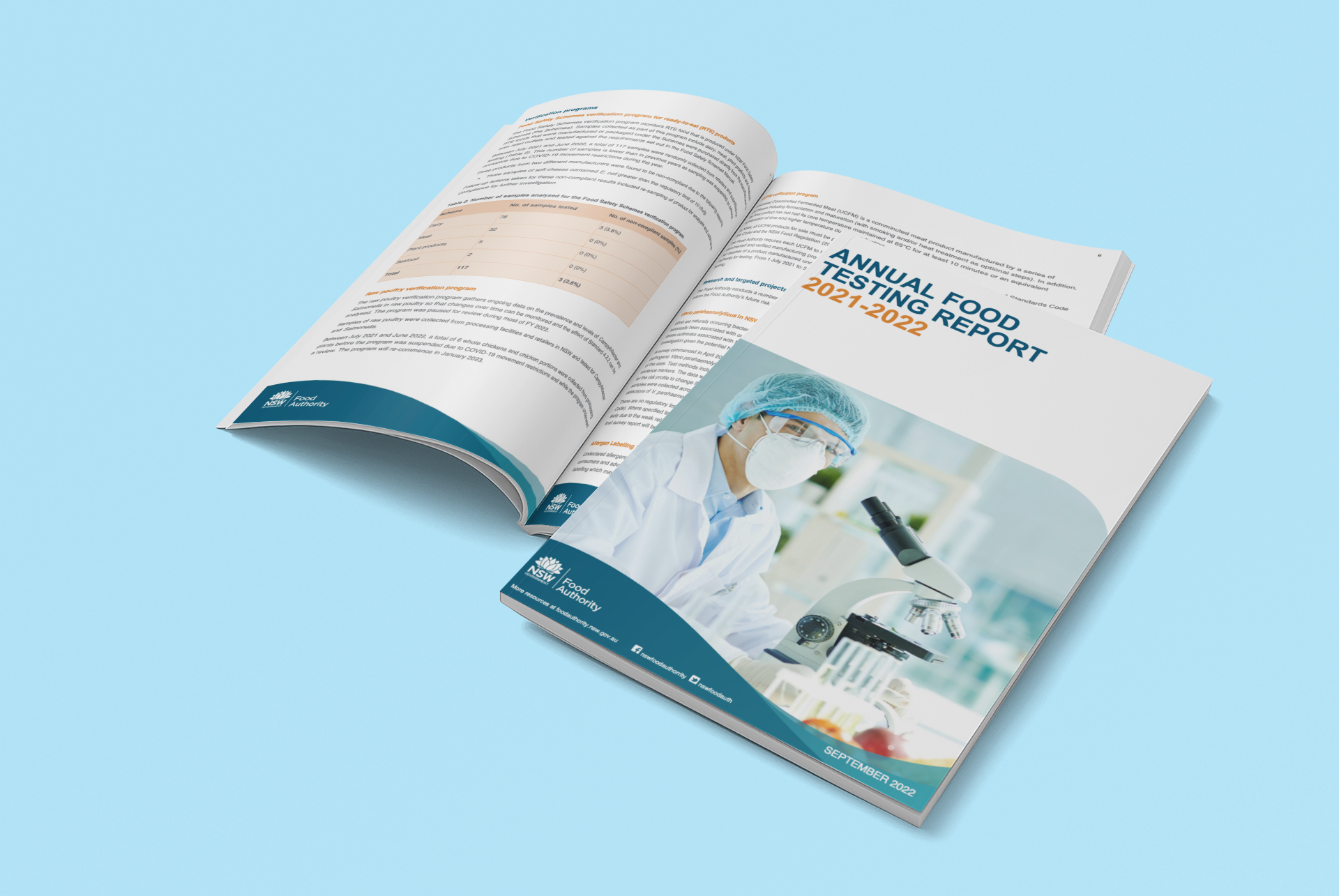
Blue-green algae blooms
Algal blooms can cause waters to be unsafe for all users of water including agriculture, irrigation and recreation.
As temperatures increase during spring and summer, blue green algae (Cyanobacteria) blooms can occur in dams, rivers and streams. Certain species of blue green algae produce harmful toxins that may be poisonous to humans or cause fatalities in domestic animals and fish.
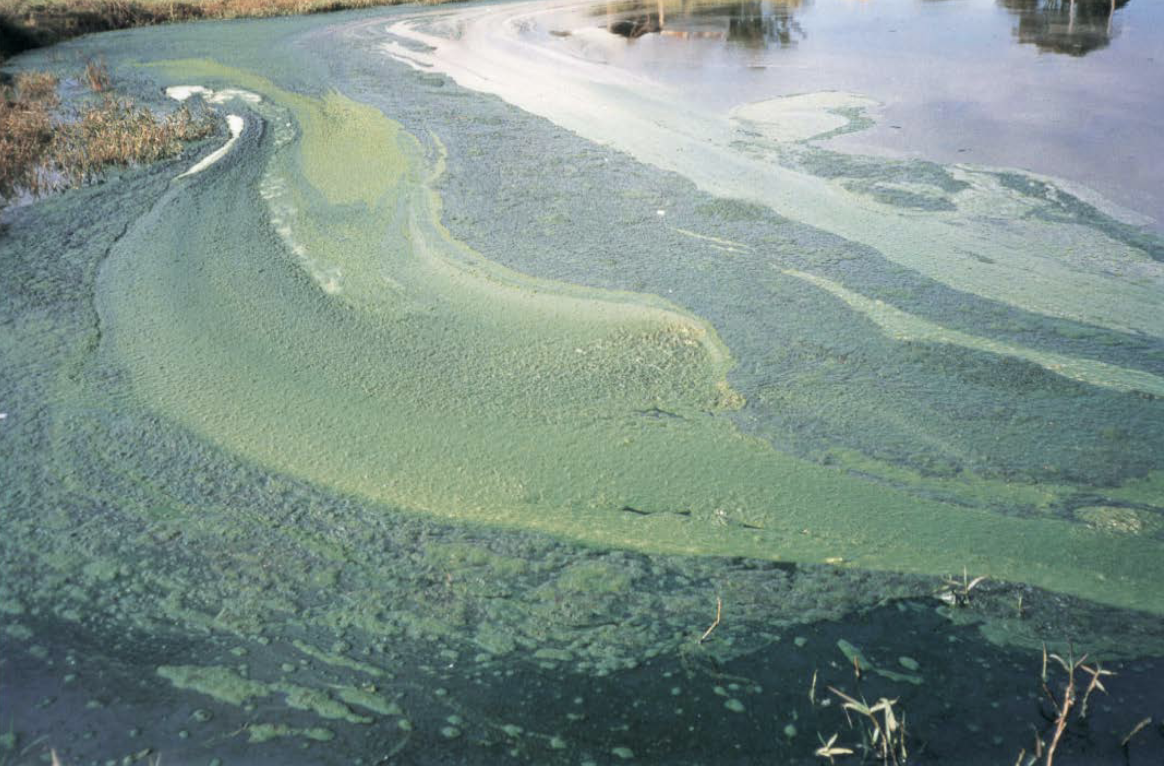
Algal growth can block irrigation equipment and may affect human health.
Algal growth can block irrigation equipment and may affect human health.
There is potential for algal blooms to negatively impact the quality of water used for agriculture and irrigation. It is important to be aware of how your business can be affected if an algal bloom occurs.
The NSW DPI have provided fact sheets to guide water use for businesses during blue green algal bloom events.
WaterNSW provides alerts and up-to-date information on algal blooms in NSW.
For further details for algal blooms in a specific region in NSW, please contact the appropriate Regional Algal Coordinating Committee.
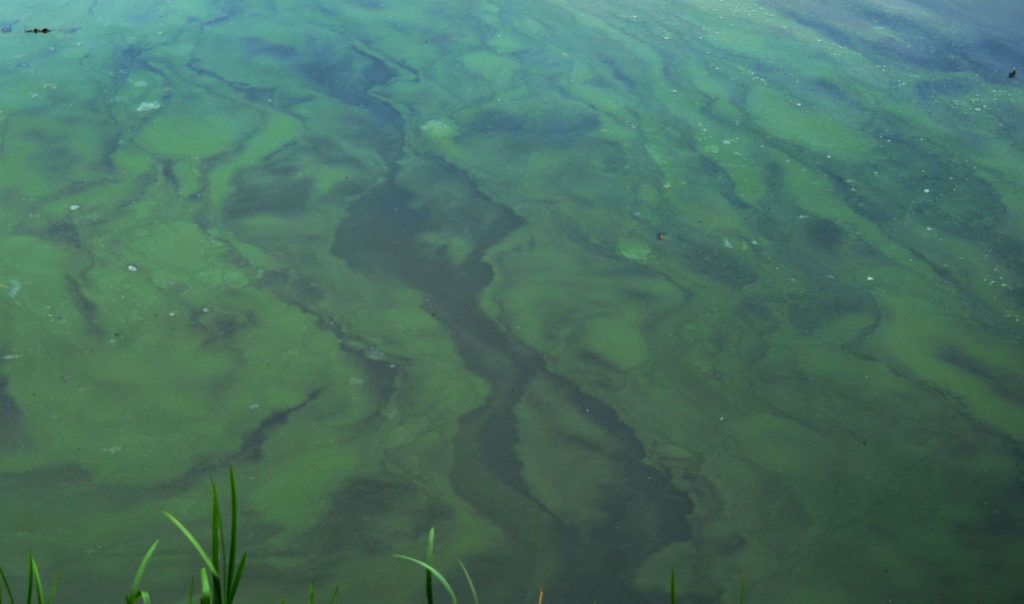
Third party auditor conference gets the tick of approval
In May, the NSW Food Authority hosted their annual conference and networking function for third party regulatory food safety auditors (TPAs).
There are currently 49 licensed TPAs in NSW who are approved by the NSW Food Authority to undertake regulatory food safety audits on their behalf, predominately in the Vulnerable Persons and Dairy Primary Production sectors. TPAs provide an important additional support function to ensure food safety compliance with Food Regulation 2015.
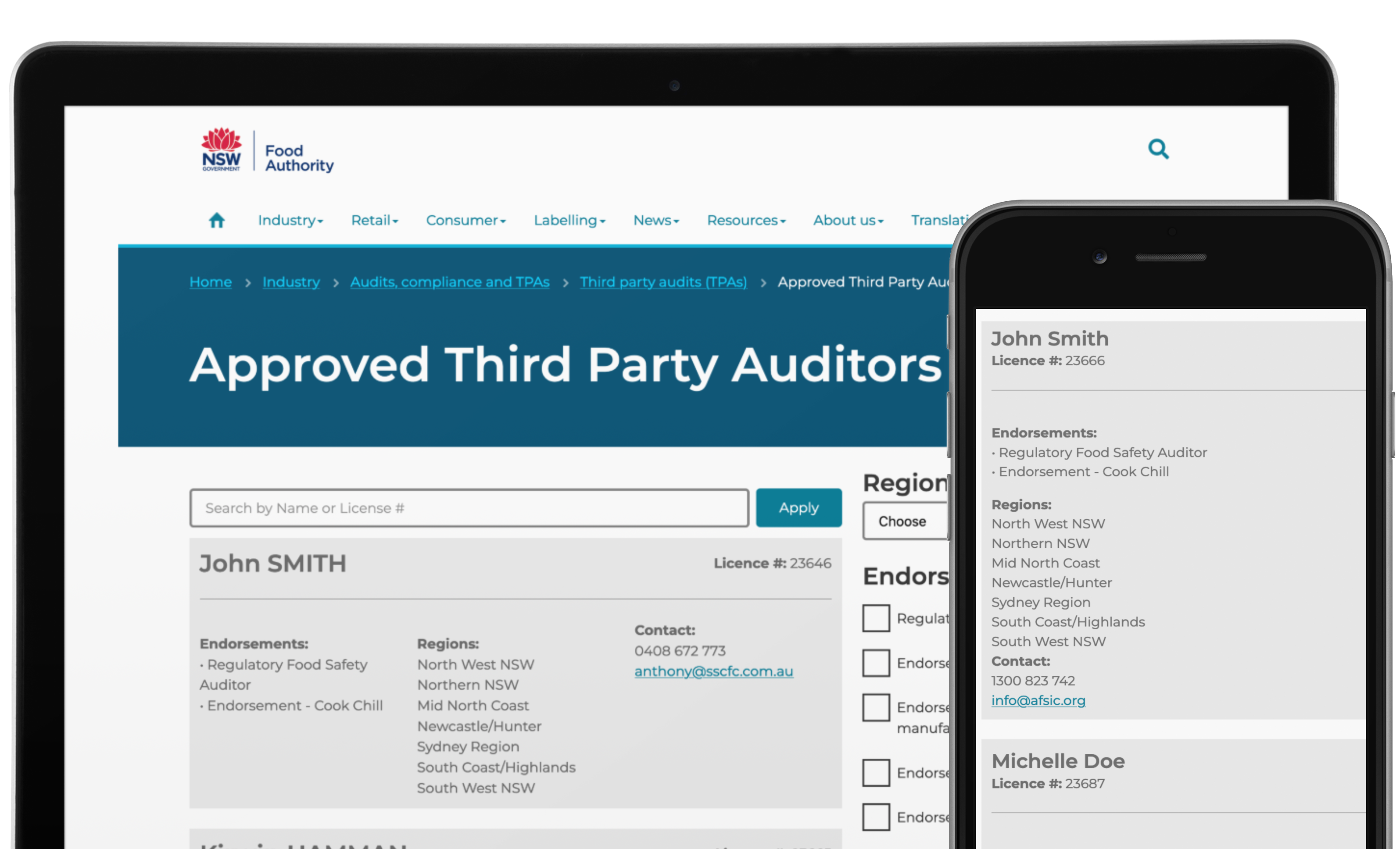
Auditors that have been approved by the Food Authority are listed on the auditor register.
Auditors that have been approved by the Food Authority are listed on the auditor register.
The conference provided an opportunity for TPAs to convene face-to -face, for the first time since August 2019, with COVID-19 disrupting in-person stakeholder engagement activities.
Conference attendees were treated to a keynote presentation from Fiona Fleming, CEO of the Australian Institute of Food Science and Technology focussing on the agri-food industry of the future, and how food safety trends were informing these industries now, and into the future.
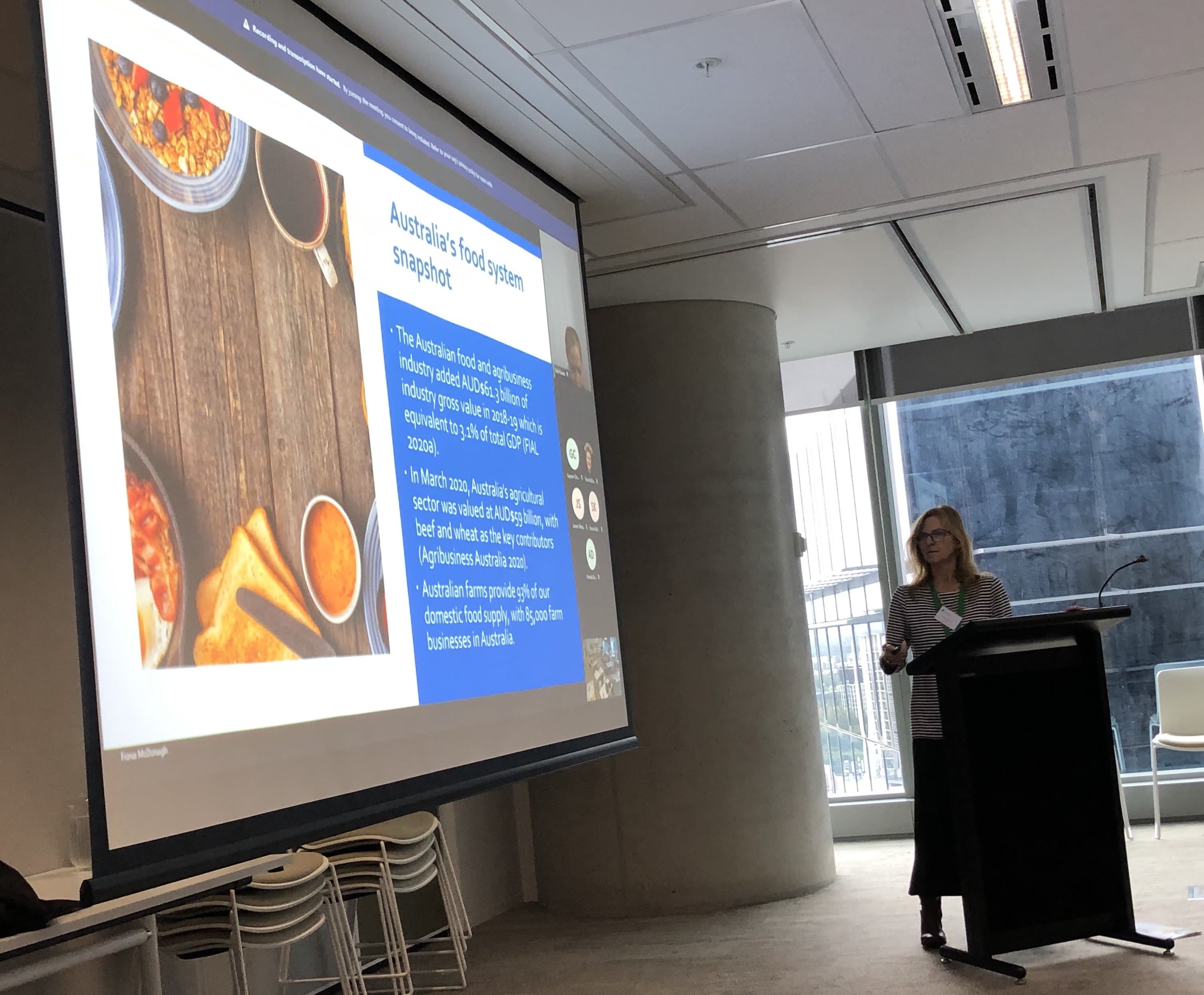
Fiona Fleming, CEO of the Australian Institute of Food Science and Technology
Fiona Fleming, CEO of the Australian Institute of Food Science and Technology
Additional presentations from technical and subject matter experts from within NSW Department of Primary Industries (NSW DPI) demonstrated the collaborative effort across Biosecurity and Food Safety (BFS) to ensure TPAs are kept well informed, aware of current developments in the field and know how to access technical expertise from within the NSW DPI if needed.
Topics covered during the conference included:
- A year in review: Compliance Data/Remote Auditing/COVID 19 Impacts
- Alternative food safety compliance
- Renewing process for Third Party Auditors
- Foodborne illness investigations and Plain English Allergen Labelling (PEAL) legislation
- Investigation – from inspection to prosecution
- New compliance calendar
A demonstration of a new web-based application (‘app’) developed to assist TPAs was also delivered. The app is designed to assist in recording and reporting audit outcomes and as a result, increases efficiencies and reduces red-tape as it allows for audit outcomes to be delivered to the business in real-time.

New web-based application (‘app’) developed to assist TPAs
New web-based application (‘app’) developed to assist TPAs
The final session of the day was an update on Automatic Mutual Recognition legislation, which enables recognition of licensed occupations across jurisdictional borders.
The formal conference proceedings were followed with an evening networking function, where TPAs were able to meet and greet with businesses eligible to use their auditing services. These businesses were invited to engage with TPAs to discuss opportunities to undertake future audits in their business, and from gauging direct feedback from participants, this event was an overwhelming success leading to direct business to business relationships being formed.
Interested in being part of the Third Party Auditor program? If you are an eligible business or to find out your eligibility status, see the website for more details
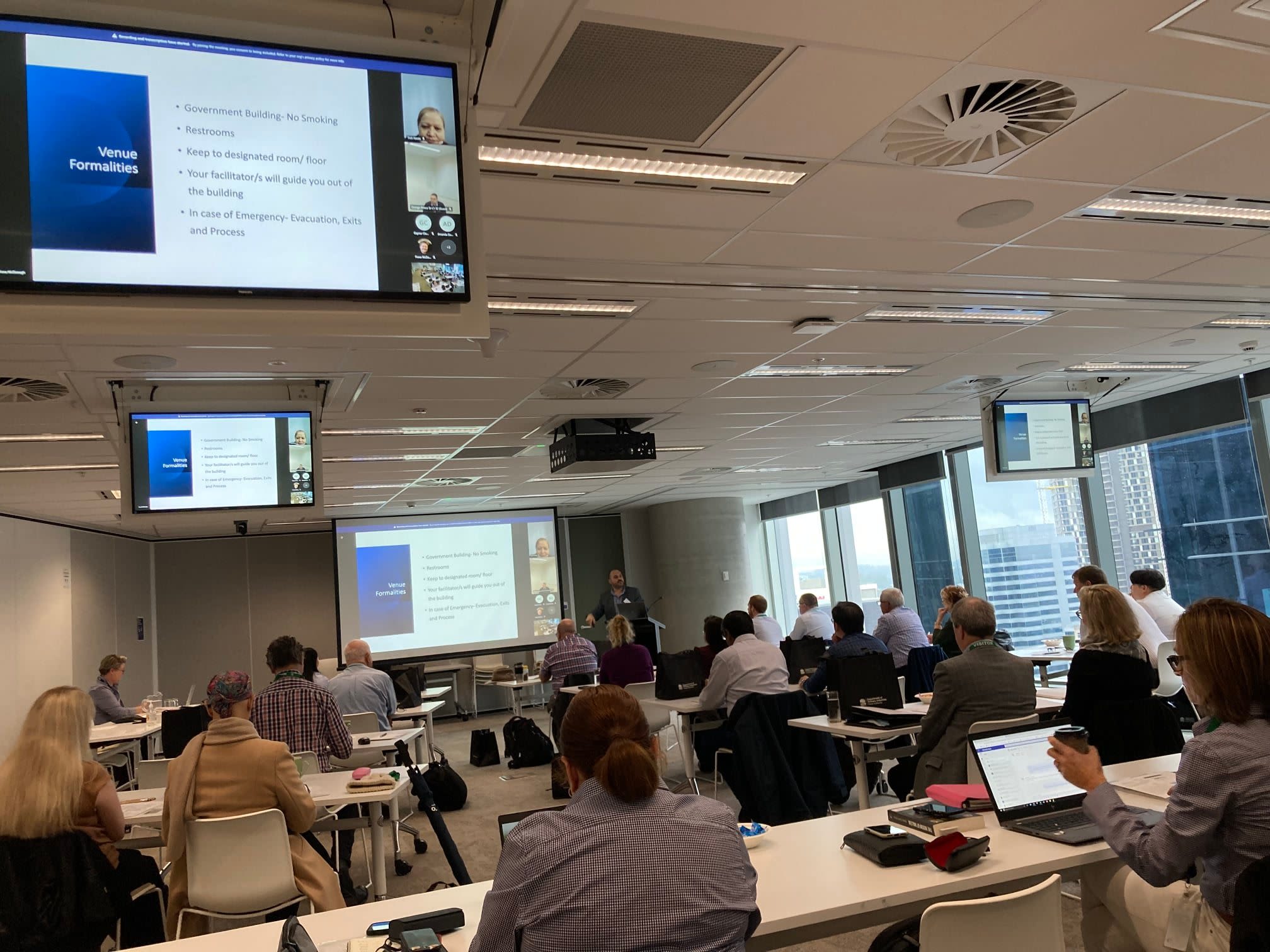
Pig and cattle feed check helps protect livestock industries
NSW Department of Primary Industries (DPI) is leading a campaign to support livestock industries by visiting properties in Sydney and providing vital information about feed which could endanger animal health.
NSW DPI and Greater Sydney Local Land Services staff are checking in with people who have recorded they have pigs and cattle to help protect them from emergency animal diseases, such as foot-and-mouth disease and African swine fever.
Biosecurity and food safety officers are reviewing the animals’ diets at up to 100 properties to ensure they are being fed foods that do not compromise their health or result in an emergency animal disease.
Livestock should never be fed food scraps which may contain contaminants. Food scraps, known as prohibited pig feed or swill and restricted animal material (RAM) for cattle, can make livestock sick and spread disease.
Unsafe for pigs and cattle, swill and RAM may contain meat, meat products or other food scraps which have come into contact with meat or a meat product.
Under the NSW Biosecurity Act 2015, it is illegal to feed or allow livestock access to swill or RAM. This legislation aims to protect our livestock industries and pets.
More information about protecting pigs from emergency animal diseases and what you can and can’t feed pigs and cattle is available from the NSW DPI website.
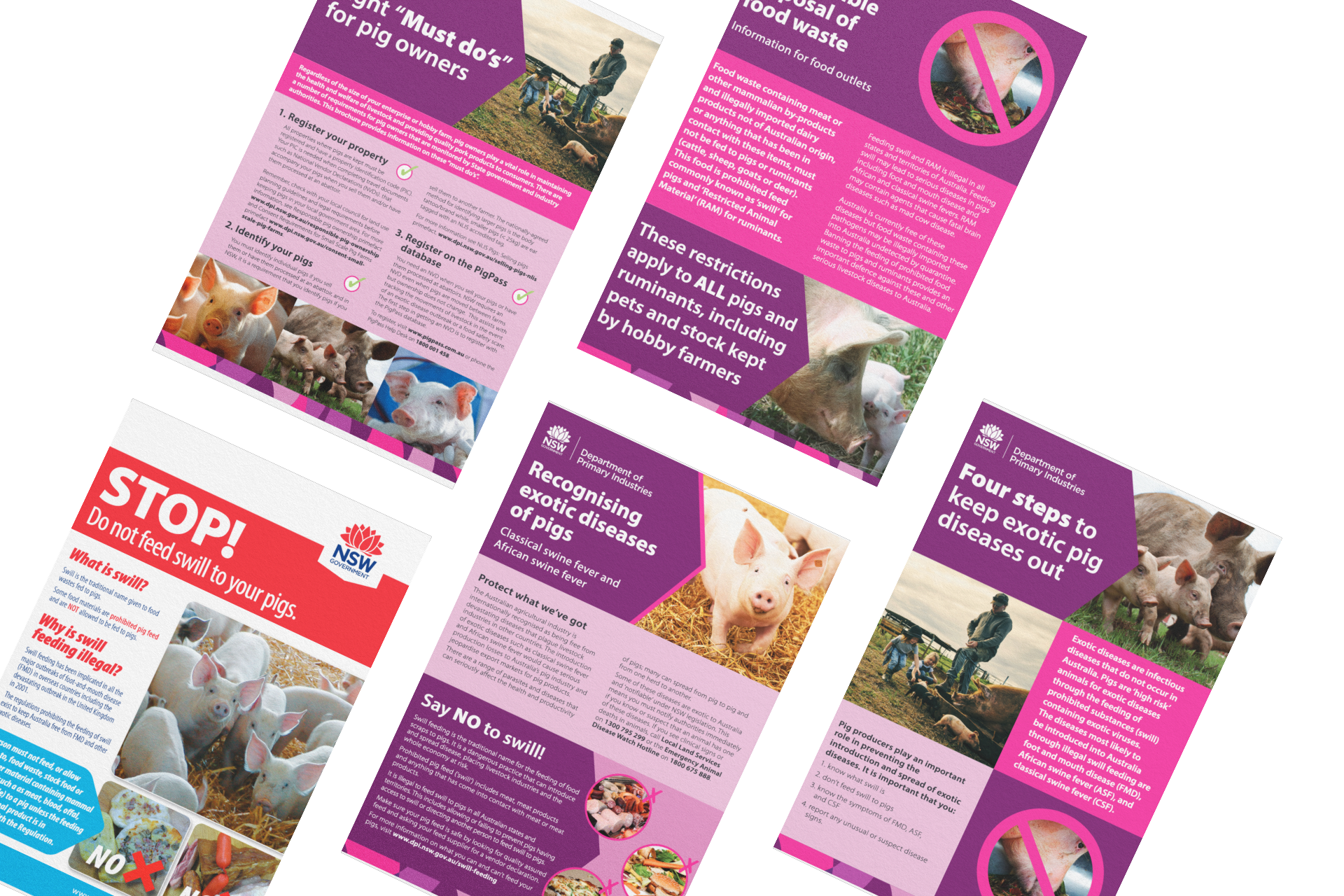
RETAIL
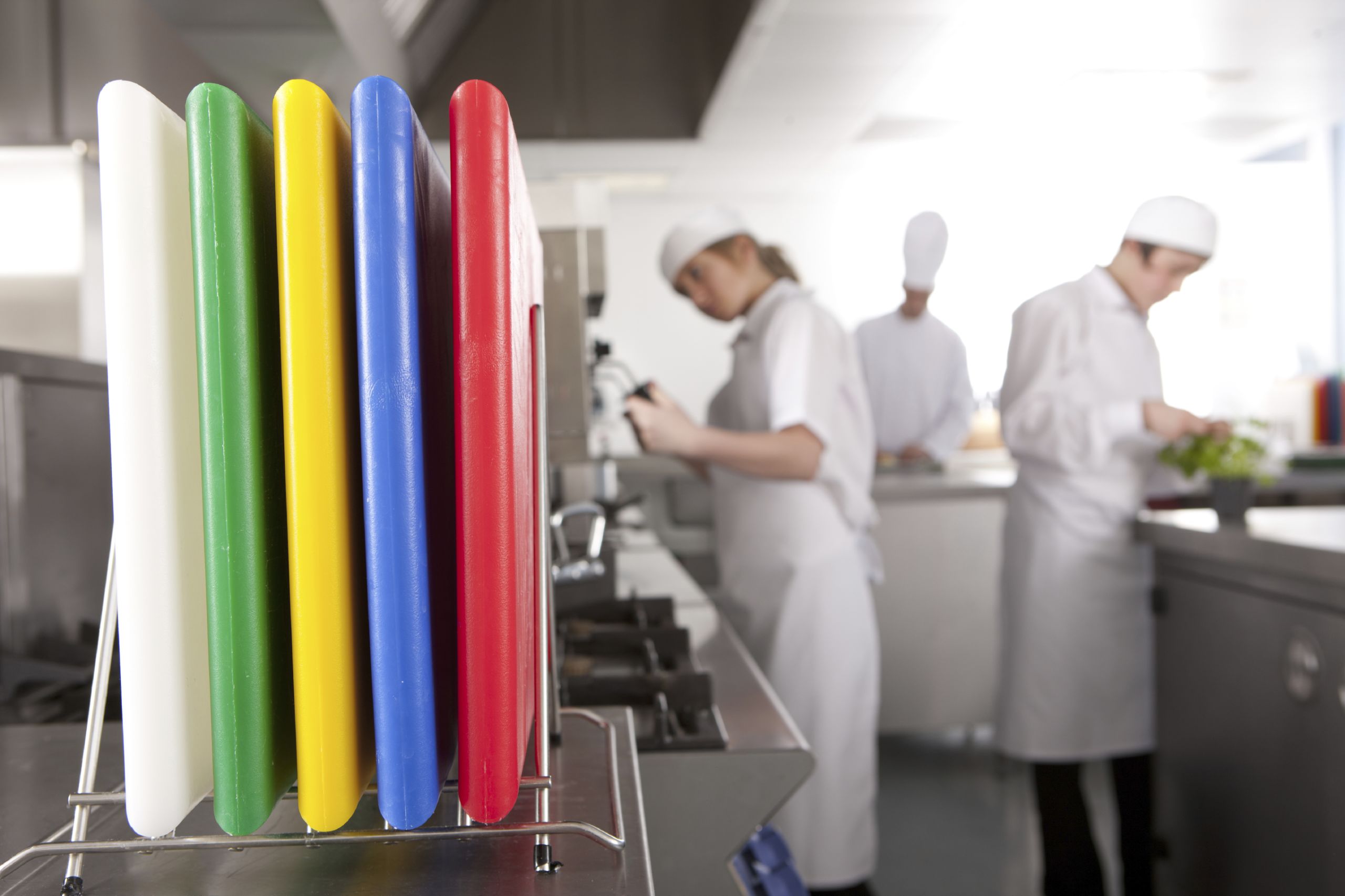
Retail and Food Service Information Roadshow
The NSW Food Regulation Partnership is taking the Retail and Food Service Information Sessions on the road, with three events planned for the end of October.
The sessions are hosted in conjunction with the relevant local council in the area and are free to attend. Sessions have been scheduled at:
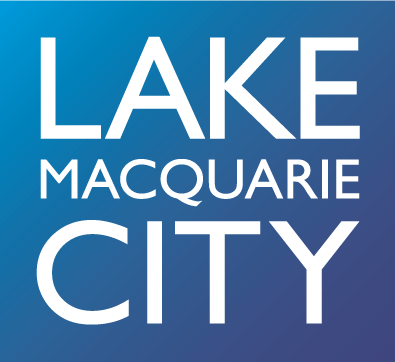
Argenton on Tuesday 18 October (hosted by Lake Macquarie City Council)

Cessnock on Wednesday on 19 October (hosted by Cessnock City Council)

Nelson Bay on Thursday 20 October (hosted by Port Stephens Council)
The sessions are an opportunity for local food businesses to learn how to instil a culture of food safety in their business, engage with other food businesses and the regulators, hear more about the resources that are available to support them and to keep informed of food safety standards and regulations.
Under the Partnership, councils undertake the physical inspections of food service and retail businesses, and the Food Authority provides assistance, support and guidelines in the interpretation of food laws, consistency of inspections and technical advice.
If you are interested in attending one of these events, or have a question about them, contact the NSW Food Authority on 1300 552 406 or at food.contact@dpi.nsw.gov.au

Say NO to prohibited pig feed
Prohibited pig feed (also known as ‘swill’) is illegal in Australia.
This means that in ALL states and territories of Australia, it is illegal to:
- feed food waste containing meat or other mammalian by-products to pigs
- allow pigs access to food waste containing meat or other mammalian by-products
- supply food waste containing these products for the purpose of feeding to pigs
Prohibited pig feed includes meat (raw, cooked or processed), bone, blood, offal or hide derived from a mammal, as well as milk, milk products and by-products illegally imported into Australia and anything that has come into contact with these materials.
Diseases such as foot-and-mouth disease and African swine fever are most likely to enter Australia through illegal imports of meat and dairy products infected with a serious disease and the subsequent illegal feeding of these products (prohibited pig feed or swill) to pigs.
If you suspect that prohibited pig feed is being supplied or fed to pigs, contact the NSW Department of Primary Industries Biosecurity Helpline on 1800 680 244.
You can find more information on Swill Feeding on the:
MEAT
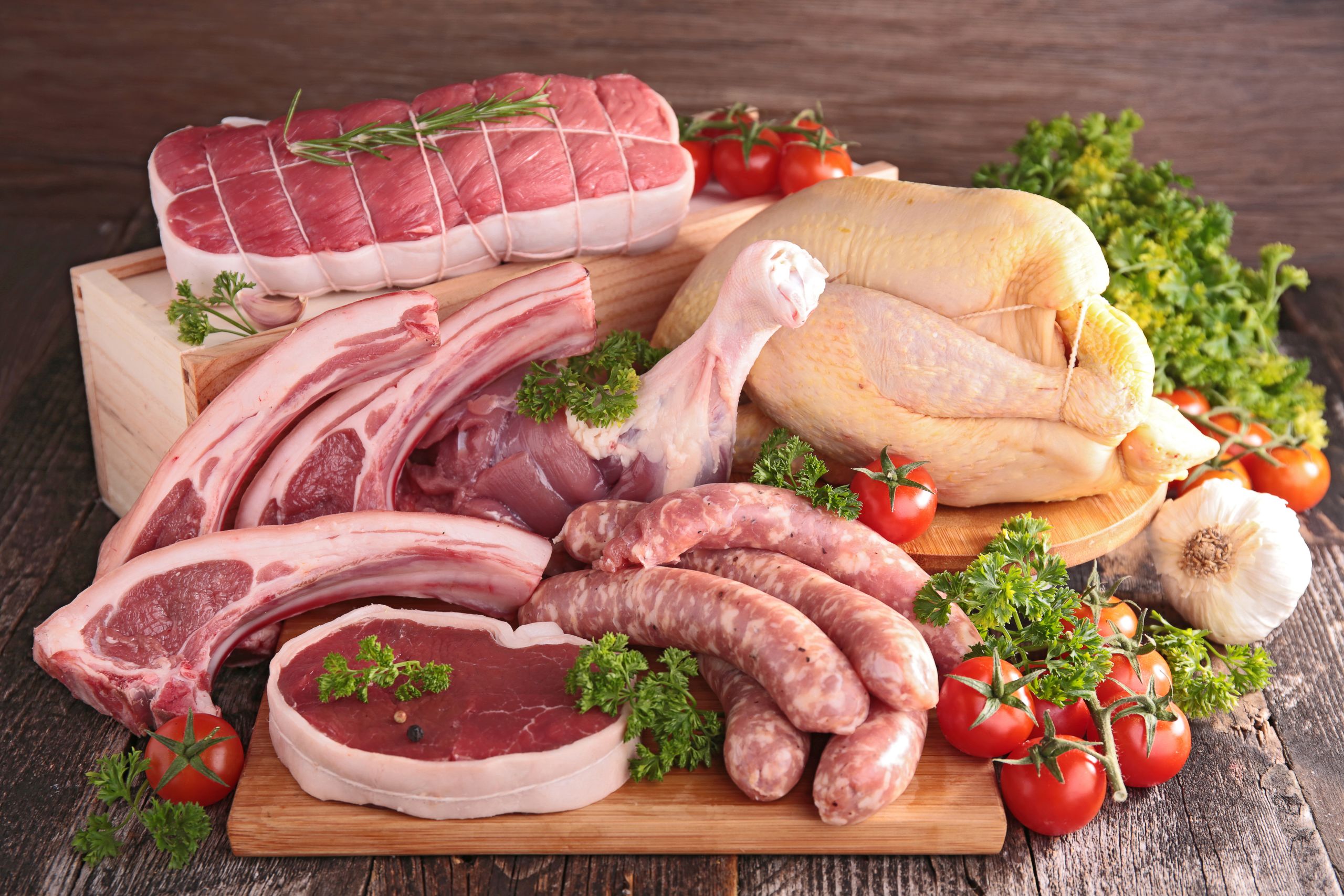
Inspections and audits
From July 2021 to June 2022, Biosecurity & Food Safety Compliance team conducted 2,527 audits and inspections of licensed meat businesses. This industry sector has recorded a compliance rate of 95%.
Of the businesses that failed their compliance audit and/or inspection during the reporting period, all subsequent follow up audits and/or inspections demonstrated compliance, indicating that licensees are implementing effective corrective actions in response to audit failures.
The below table shows yearly comparable data for compliance activity in the meat sector between reporting years 2020/21 and 2021/22.
| Reporting period | 2020/2021 | 2021/2022 |
|---|---|---|
| Audits and inspections | 2,427 | 2,526 |
| Compliance rate | 94% | 95% |
Meat Industry Consultative Council
The last Meat Industry Consultative Council (MICC) meeting was held on 13 July 2022.
Issues considered by the committee via video conference during the meeting included updates on:
- Meat industry compliance activities for the 2021-22 financial year to date.
- Animal welfare update
- Biosecurity update – recent detection of LSD and FMD in Indonesia and DPI’s Animal Biosecurity preparations should the disease be detected in Australia.
A full summary of meeting outcomes is available here.
More information about the Meat Industry Consultative Council, including its purpose, functions, and membership can be found on the NSW Food Authority website here.
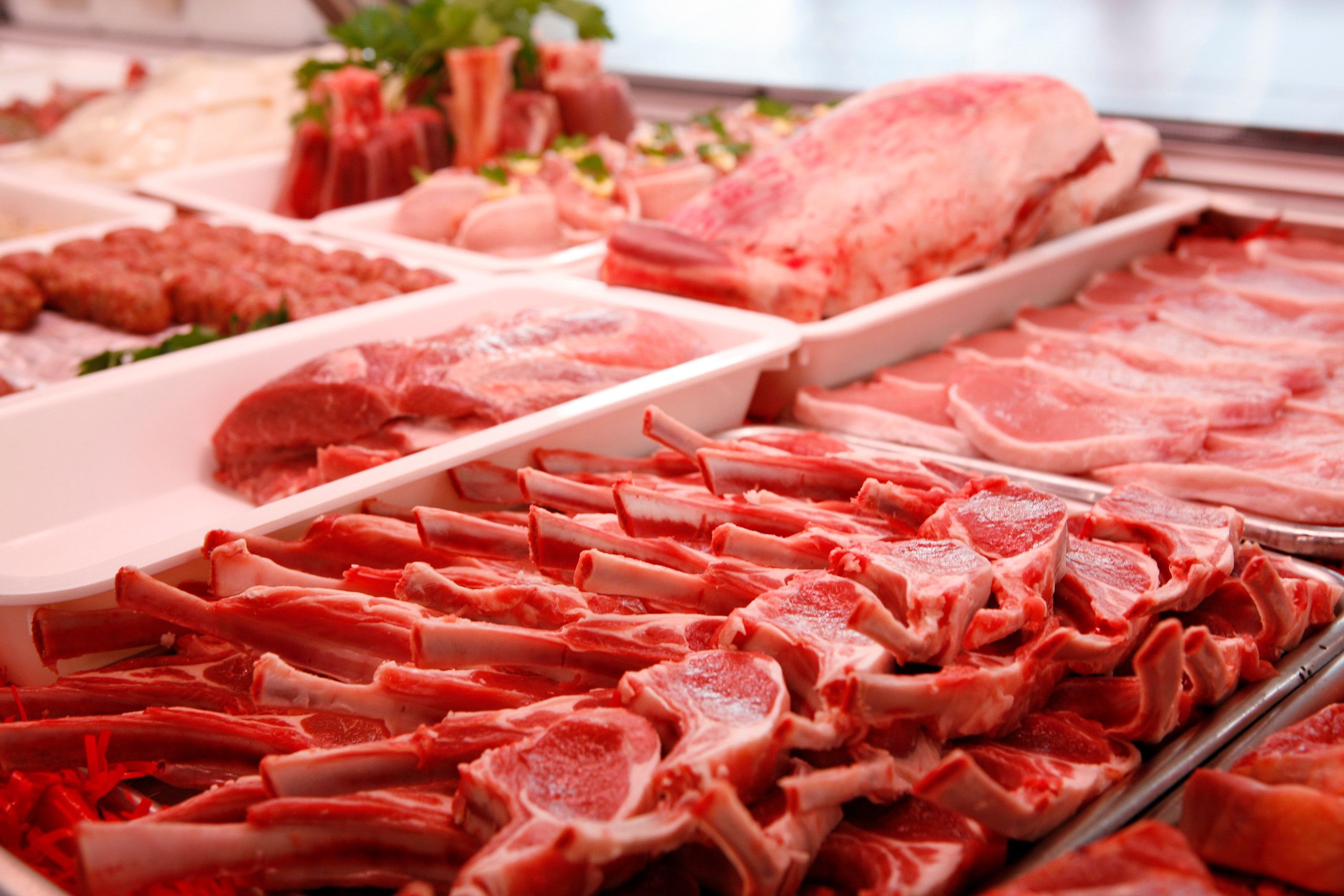
Emergency animal disease preparedness to be supported with progress on national sheep and goat eID
The NSW Government has taken the next step towards the implementation of a national, industry-led mandatory sheep and goat electronic identification (eID) system to improve tracking and tracing of livestock.
Minister for Agriculture Dugald Saunders announced the establishment of an eID reference group to ensure key industry stakeholders have a say in its development.
The reference group will include producers, business operators and peak industry and government bodies from across Australia.
An eID system offers benefits for producers over traditional visual identification of livestock.
It means sheep and goats can be traced with greater efficiency and accuracy which is critical in the event of an emergency disease outbreak, such as foot-and-mouth disease (FMD).
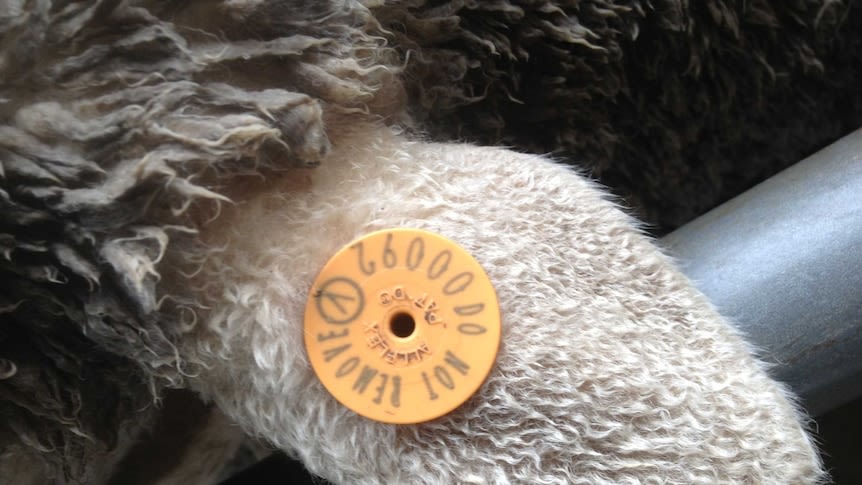
eID (electronic identification) tag
eID (electronic identification) tag
Speeding up tracing increases our ability to control a disease outbreak and minimises the social and economic impacts on industry and our communities.
Biosecurity is a shared responsibility, where everybody plays a part in protecting our economy, environment and communities against disease incursions.
This shared agreement to implement a national eID system for sheep and goats is an important step towards closing any gaps in our national biosecurity system as Australia works towards keeping its borders strong against biosecurity threats.
Minister Saunders said the first piece of work for the reference group will be to develop a timeline for the implementation of the sheep and goat eID using a risk-based approach.
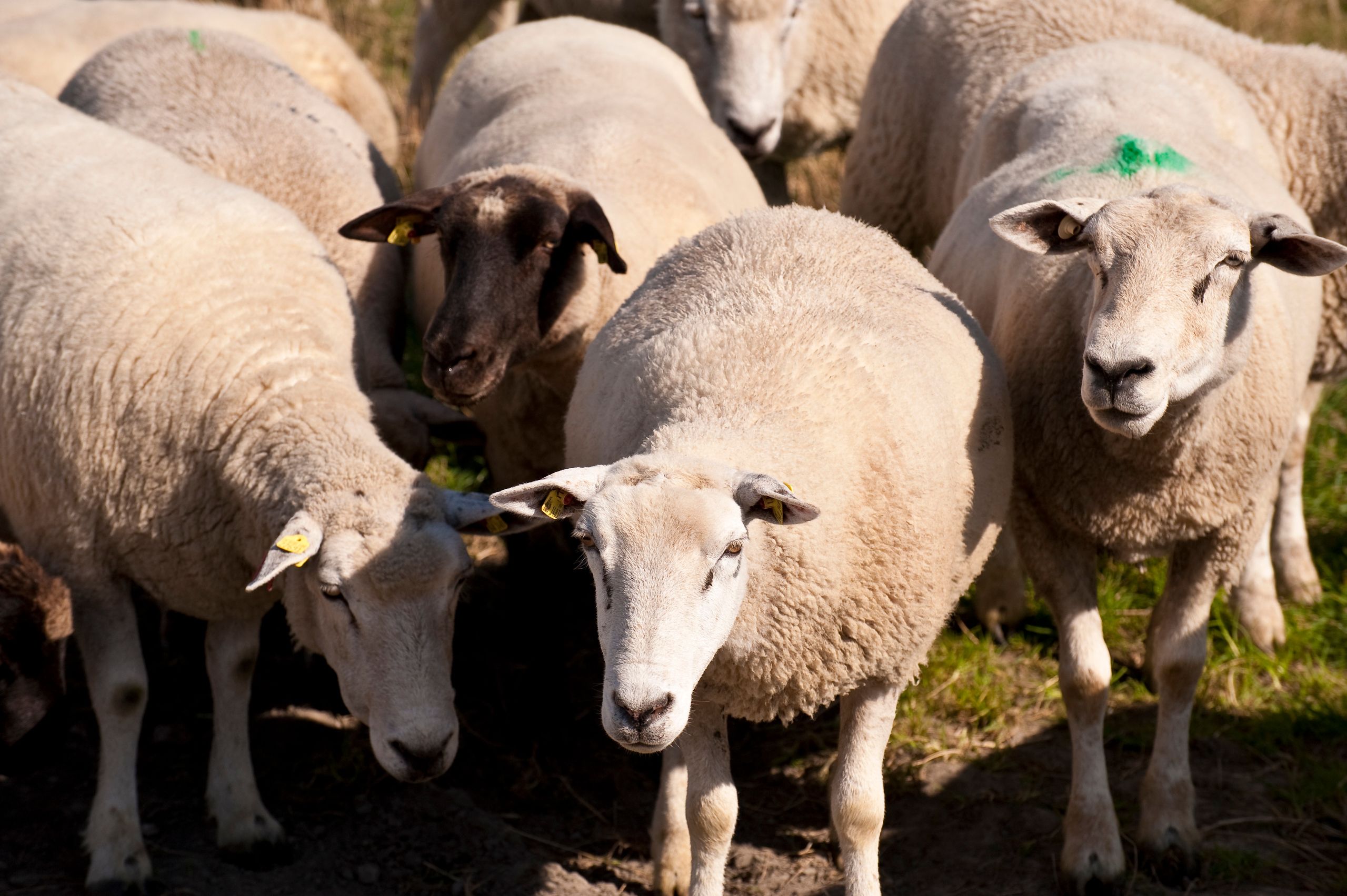
SEAFOOD

Inspections and audits
From July 2021 to June 2022, Biosecurity & Food Safety Compliance team conducted 445 audits and inspections of licensed seafood businesses. Compliance across the seafood industry had been high in previous years and remains at the target of 95% for FY 2021/22, despite an increase in audits and inspections across the sector.
The table below shows yearly comparable data for compliance activity in the seafood sector between reporting years 2020/21 and 2021/22.
| Reporting period | 2020/2021 | 2021/2022 |
|---|---|---|
| Audits and inspections | 433 | 445 |
| Compliance rate | 95% | 95% |
NSW Shellfish Committee
The last NSW Shellfish Committee meeting was held on 10 August 2022.
Issues considered by the committee via video conference during the meeting included updates on:
- QX in Port Stephens – update
- QX funding sourced
- Water quality initiatives
- Sensor network update
A full summary of meeting outcomes is available here.
More information about the NSW Shellfish Committee, including its purpose, functions, and membership can be found on the NSW Food Authority website here.
The next meeting of the NSW Shellfish Committee will be held on 9 November 2022.
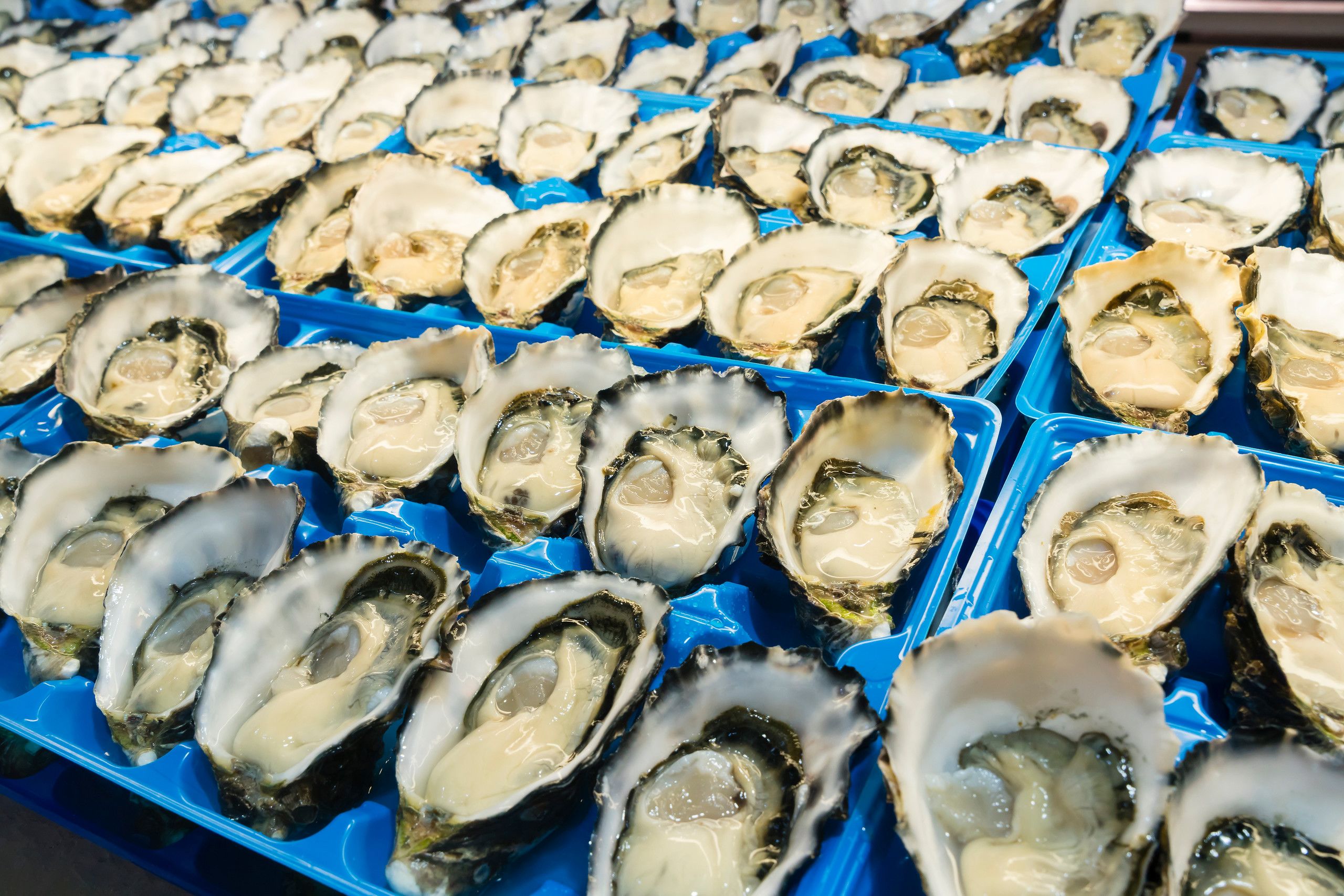
Transforming Australian Shellfish Production – Project Update
The Tranforming Australian Shellfish Production project uses data from real time sensors, biological samples and molecular genetic methods to support harvest area operations in shellfish growing areas. The project is a collaboration between the Food Agility CRC, UTS, NSW DPI, NSW Farmers Association and the Western Australia Agriculture Authority, along with NSW and WA oyster farmers.
Individual reports presenting project outputs are being developed for participating estuaries. As they become available, the reports will be published on the Food Agility CRC website. Reports for Wagonga Inlet and Wallis Lake have recently been finalised.
The reports for both Wagonga Inlet and Wallis Lake demonstrated that using real time salinity sensor data for harvest area management could result in fewer harvest closures or downgrades. Modelling of the sensor data and environmental DNA demonstrated that sensor salinity was generally a more reliable predictor of faecal bacteria in the harvest area than rainfall.
Information and samples collected during an algal bloom in Wagonga Inlet during 2019 provided an additional opportunity to test molecular tools for detecting a potentially harmful group of algae, and to model the temperature and salinity conditions around the bloom. This work was also published in the scientific journal Harmful Algae.
The project findings to date have shown how the use of real time sensor data coupled with molecular methods can have multiple benefits for shellfish production.

Update on White Spot
Test results show NSW waters remain free from white spot
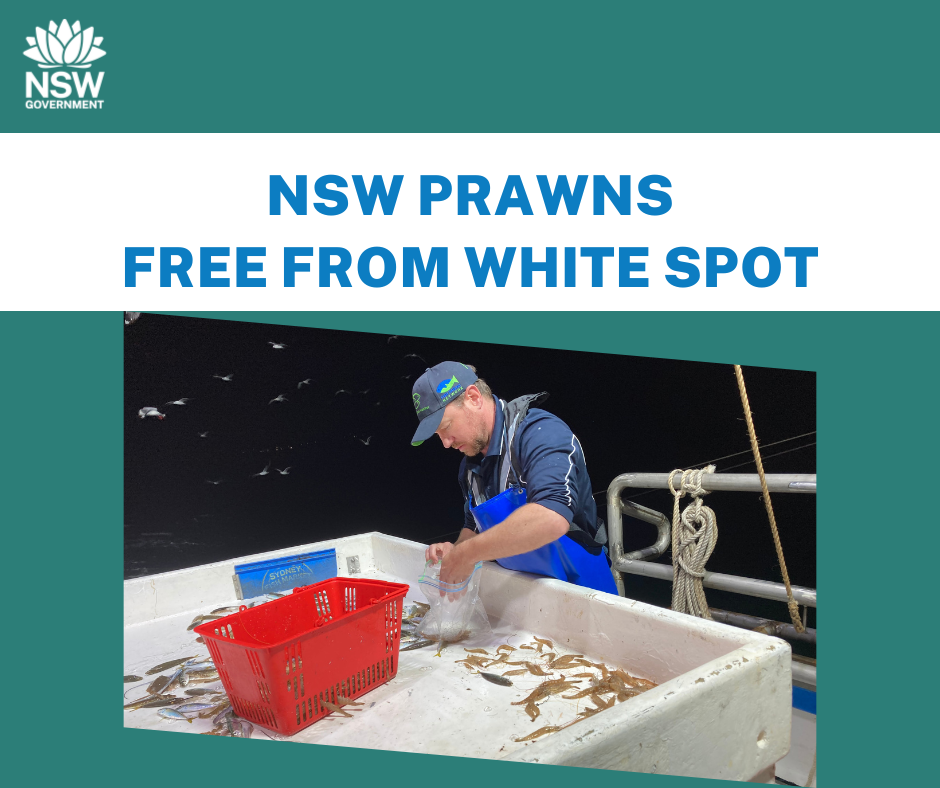
Test results have shown no evidence of White Spot in ocean and estuary prawns in areas surrounding a northern NSW prawn farm where White Spot was detected last month.
The findings reaffirm NSW waters are free from White Spot and is a direct outcome of the swift and effective response of the NSW Department of Primary Industries (DPI) with the support and action of the industry.
Detected on 18 August 2022, NSW DPI implemented effective measures to contain White Spot and prevent the further spread from the enclosed facility, which included the destruction of stock and decontamination of the facility.
Recreational fishers should never use prawns or seafood intended for human consumption as bait. Bait can be responsibly sourced from reputable bait suppliers or collected from the local area where you are fishing.
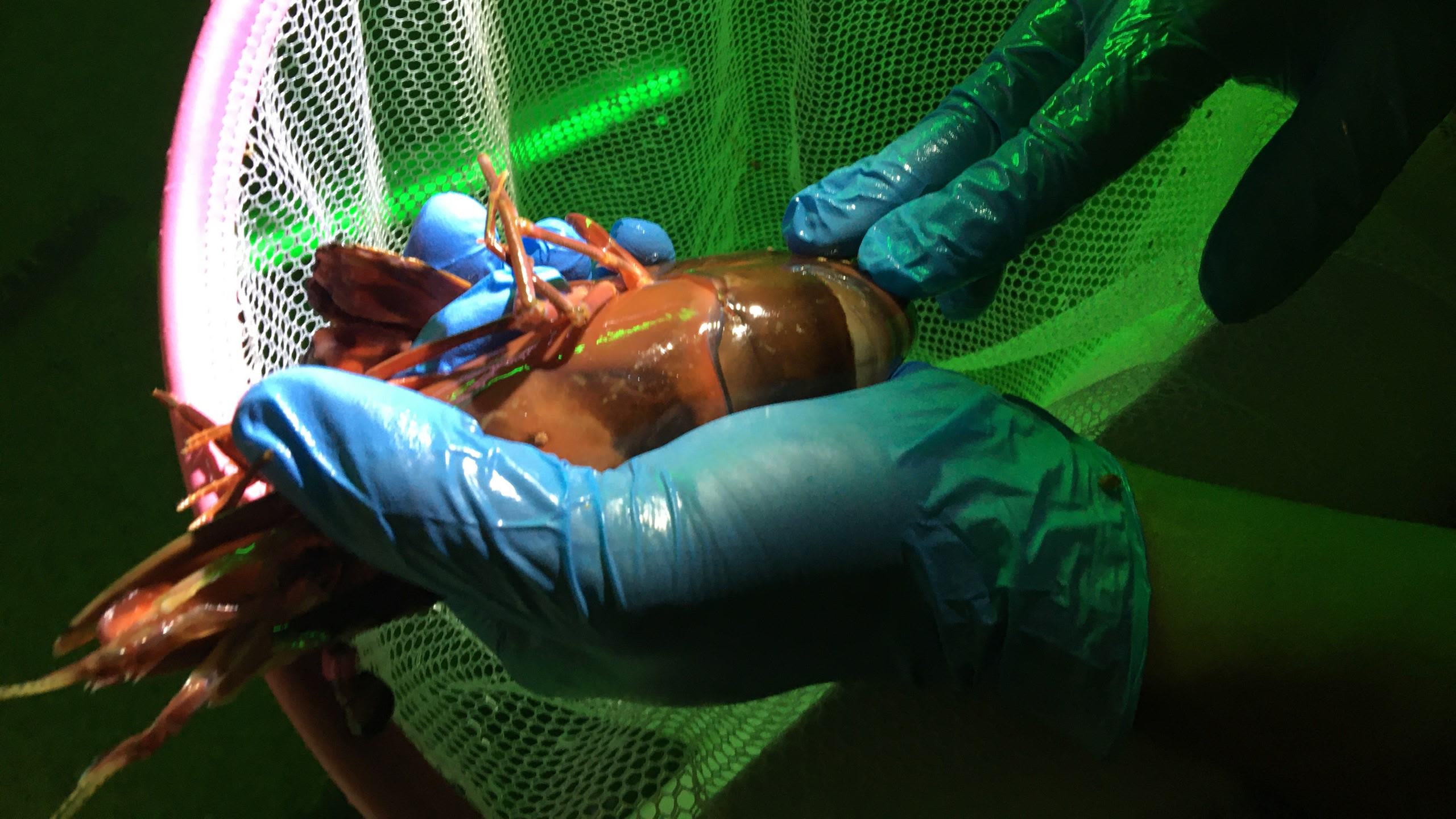
Healthy female Black Tiger Prawn
Healthy female Black Tiger Prawn
Biosecurity remains a shared responsibility and NSW DPI will continue to work with prawn farmers and fishers to enhance the state’s existing biosecurity provisions.
White Spot is highly contagious to crustaceans and can cause significant mortalities in farmed prawns. It poses no threat to human health or safety and prawns and seafood for sale in the marketplace remain safe to eat.

Storm and Flood Recovery: Sector Recovery and Resilience Grant
A range of projects have recently been approved to support NSW primary producers following the 2021 storms and floods. Funding is via the Storm and Flood Industry Recovery Program (SFIRP) framework. The aquaculture (oysters and mussels) sector projects include research into optimal production for expansion of aquaculture and product diversification, development of models to understand sewage impacts and to support increased harvest opportunities, investigating optimal brood stock conditions for Sydney Rock Oysters, design and development of more resilient and flood resistant oyster farming infrastructure, disaster preparedness and resilience building into the future and supporting improved waste management throughout the industry.
More information about these projects is available on the NSW Government Regional Recovery Programs webpage.
In collaboration with the NSW Food Authority’s Shellfish Program, the University of NSW Water Research Laboratory will lead the project to develop detailed models in ten NSW oyster production areas to assess the impact of sewage spills. This research will provide a decision support tool to assess contamination risks to harvest areas. This project will provide long term knowledge infrastructure to support the industry through increasing resilience and future preparedness.

Increased risk of marine algal blooms over spring and summer
Phytoplankton are microscopic organisms at the base of the food chain in almost all aquatic ecosystems. Some phytoplankton produce toxic compounds that can accumulate in filter-feeding bivalve shellfish and if consumed, can be harmful to humans. Blooms may be more frequent during warmer months of spring and summer.
The NSW Food Authority recommends eating shellfish harvested only under a recognised commercial program. Important tips on recreational harvest of seafood can be found on the NSW Food Authority website.
In each shellfish producing estuary in NSW, local shellfish programs collect samples for phytoplankton and biotoxin analysis to monitor for potential risks from toxic phytoplankton. During the open harvest status, fortnightly phytoplankton sampling and monthly biotoxin sampling is conducted in accordance with the NSW Marine Biotoxin Management Plan and carried out in National Association of Testing Authorities (NATA), Australia accredited laboratories.
The status of commercial shellfish harvest aquaculture areas in NSW is available online.
DAIRY
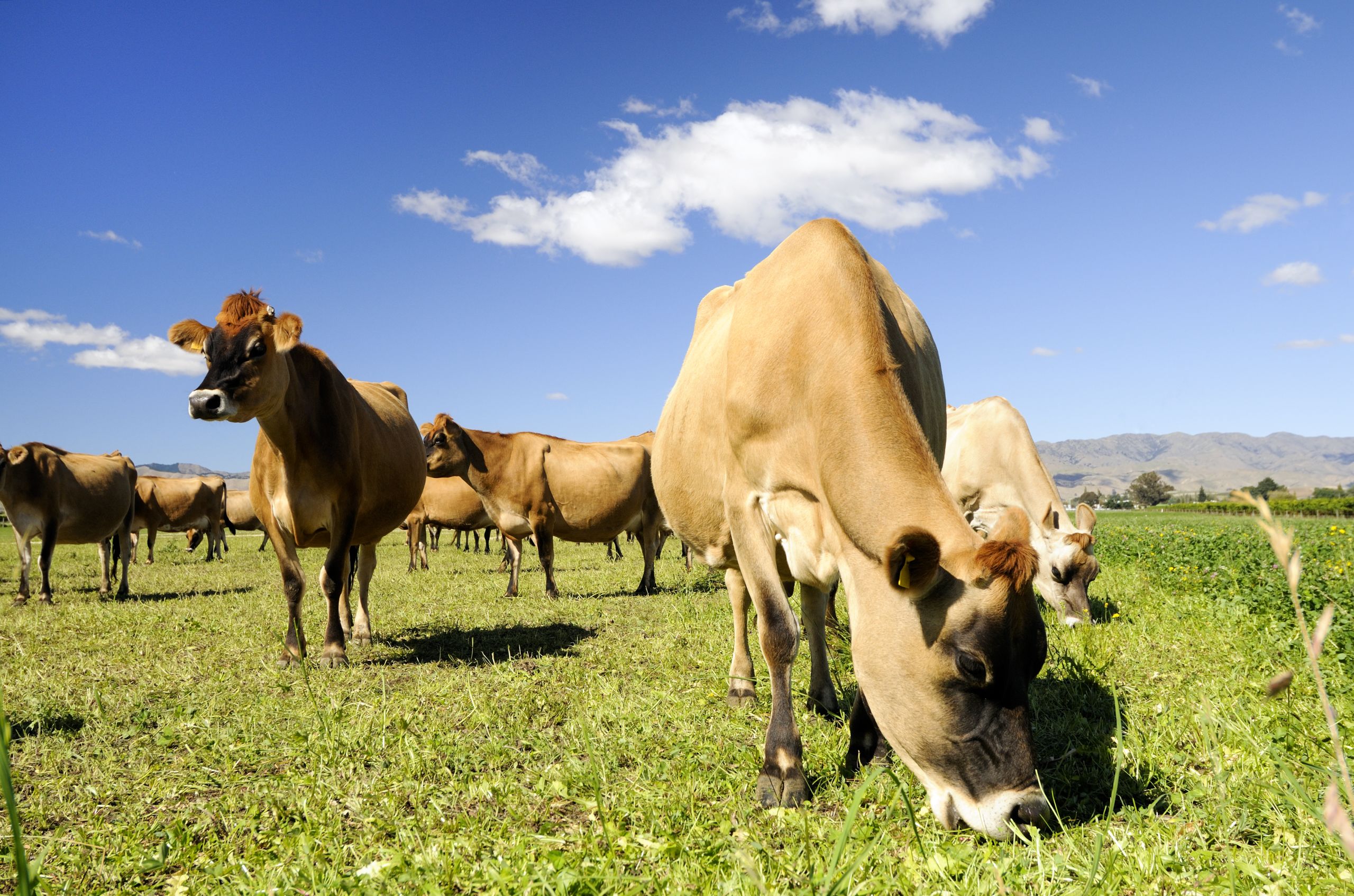
Inspections and audits
From July 2021 to June 2022, 477 audits and inspections were conducted on licensed dairy businesses. This industry sector has recorded a compliance rate of 98%. There were no serious enforcement actions taken against licensed dairy business during this period. The TPA program for dairy farms continued to maintain a high standard across this sector.
The below table shows yearly comparable data for compliance activity in the dairy sector between reporting years 2020/21 and 2021/22.
| Reporting period | 2020/2021 | 2021/2022 |
|---|---|---|
| Audits and inspections | 513 | 477 |
| Compliance rate | 98% | 98% |
NSW Dairy Industry Consultative Committee
The last NSW Dairy Industry Consultative Committee meeting was held on 15 June 2022
Issues considered by the committee via video conference during the meeting included updates on:
- Dairy industry compliance activities for the 2021-22 financial year to date.
- Animal welfare update
- Biosecurity update – recent detection of LSD and FMD in Indonesia and DPI’s Animal Biosecurity preparations should the disease be detected in Australia.
A full summary of meeting outcomes is available here.
More information about the Dairy Industry Consultative Council, including its purpose, functions, and membership can be found on the NSW Food Authority website here.
The next meeting of the NSW Dairy Industry Consultative Committee is scheduled for 26 October 2022.
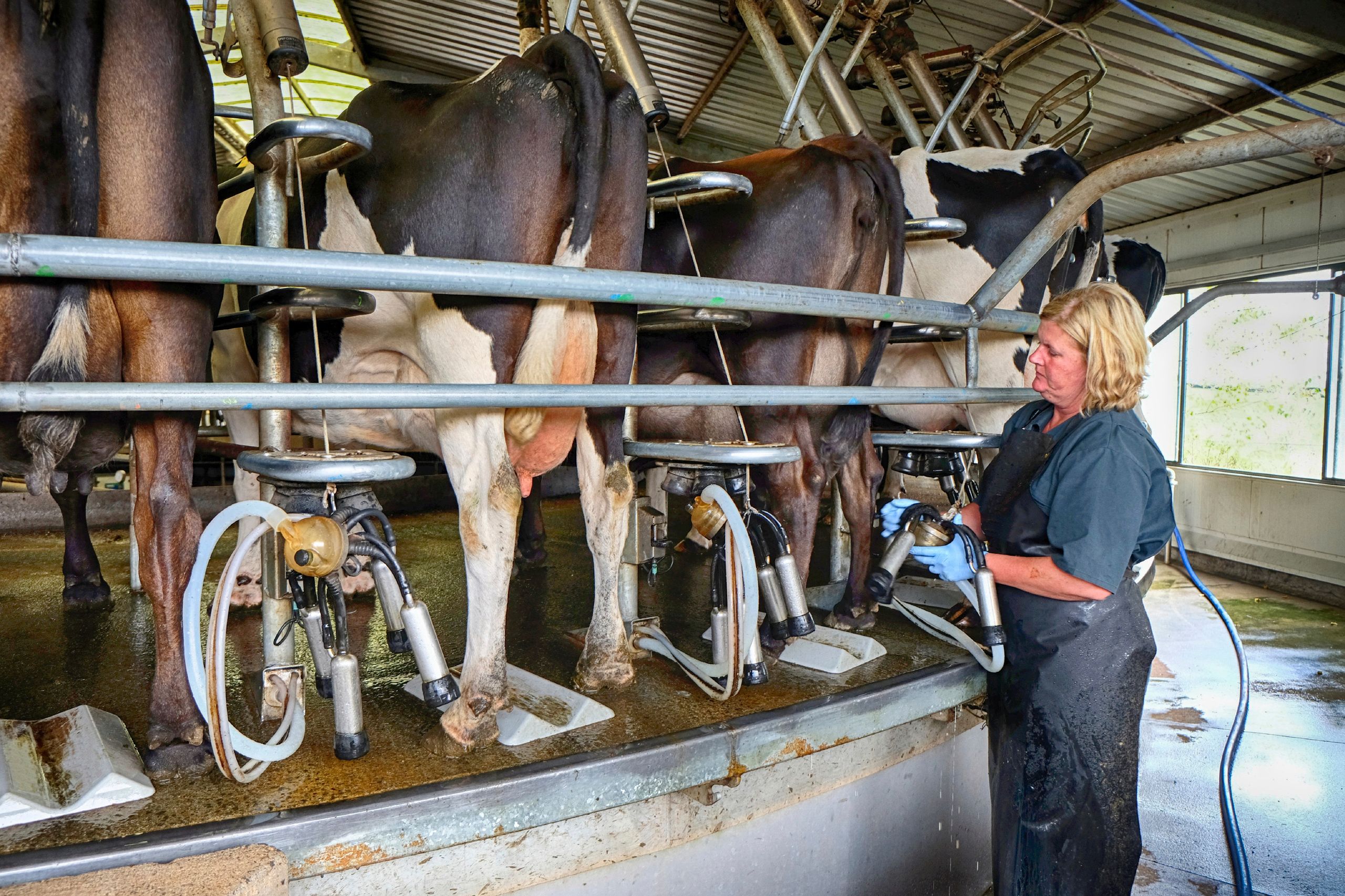
EGGS
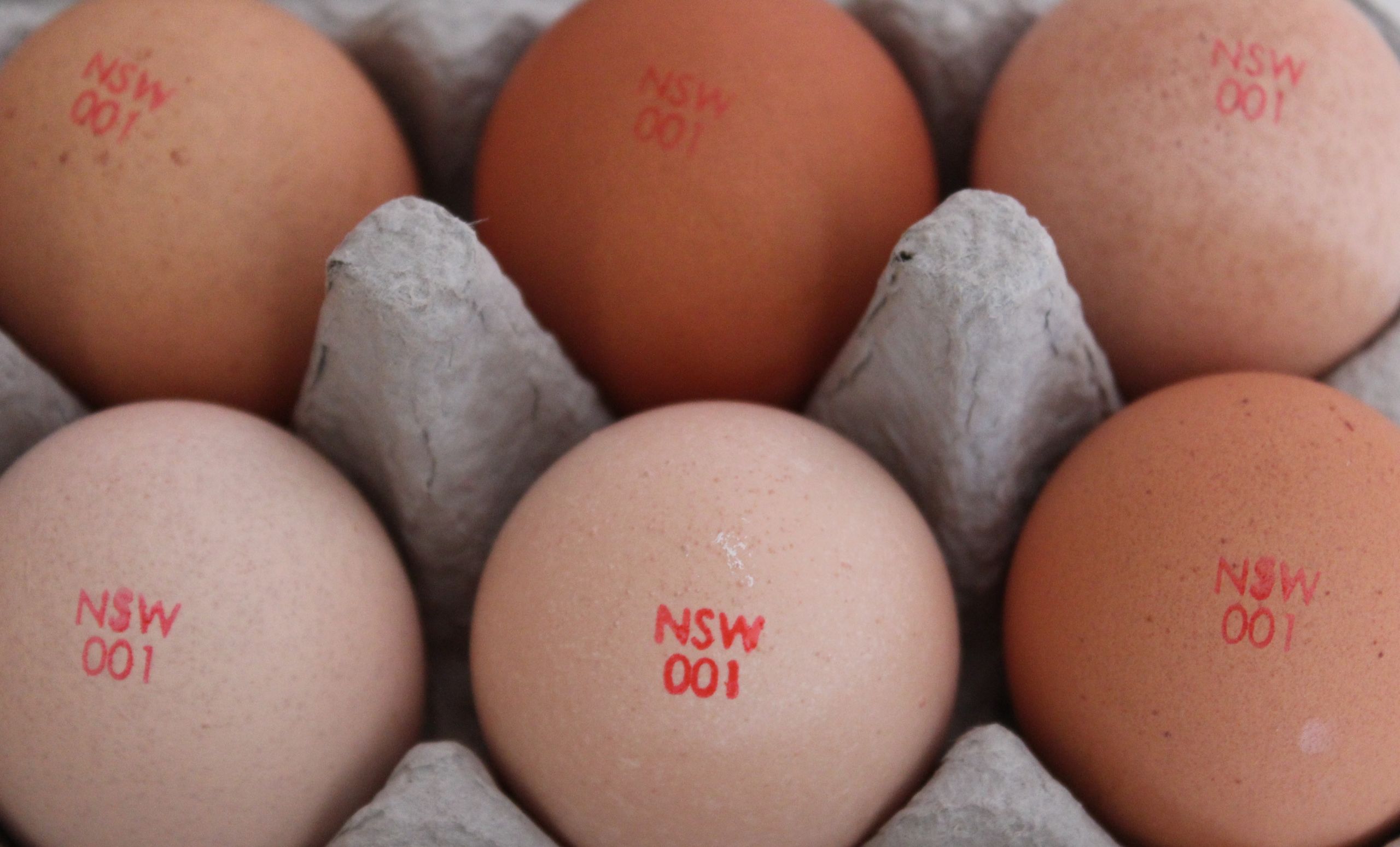
Inspections and audits
From July 2021 to June 2022, Biosecurity & Food Safety Compliance team conducted 451 audits and inspections of licensed egg businesses. This industry sector has recorded a compliance rate of 94% for the 2021/22 reporting period.
Compliance across the egg industry has significantly improved since FY 2019/20. Efforts to work with industry during the Salmonella Enteritidis (SE) control order and subsequent operational responses have contributed to the increase in industry compliance. At the end of the operational phase of the SE control order, every producer inspected achieved full compliance with the control order and food safety requirements. Biosecurity & Food Safety Compliance team has now moved to a risk based, outcome focused operational model, and consistent with the priority classification scheme for an egg business (currently P2) audit frequency will be returned to every 2 years. Complaints, inspections, and investigations will continue on an as needs basis.
The below table shows yearly comparable data for compliance activity in the egg sector between reporting years 2020/21 and 2021/22.
| Reporting period | 2020/2021 | 2021/2022 |
|---|---|---|
| Audits and inspections | 316 | 451 |
| Compliance rate | 76% | 94% |
Egg Food Safety Scheme: Periodic Review of the Risk Assessment
Under the Food Act 2003, the Food Authority is required to conduct a risk assessment before the introduction of a new food safety scheme. These schemes are how food safety requirements are put in place for specific food industries in NSW.
The previous risk assessment of the egg food safety scheme was published in 2013. The 2013 risk assessment was an update of the 2009 risk assessment. Each five-year review is conducted on an alternate basis, as either a full risk assessment or an update.
In June this year, a full risk assessment of the egg food safety scheme was undertaken.
This risk assessment was produced following a literature review for issues related to egg and egg products that have impacted egg product food safety since 2013.
You can view the updated risk assessment of the egg food safety scheme here.
Risk assessments examine what hazards, such as bacteria or chemical residues, might be present with different foods. It provides scientific data to guide the development of food safety regulations and requirements that assist in reducing illness.
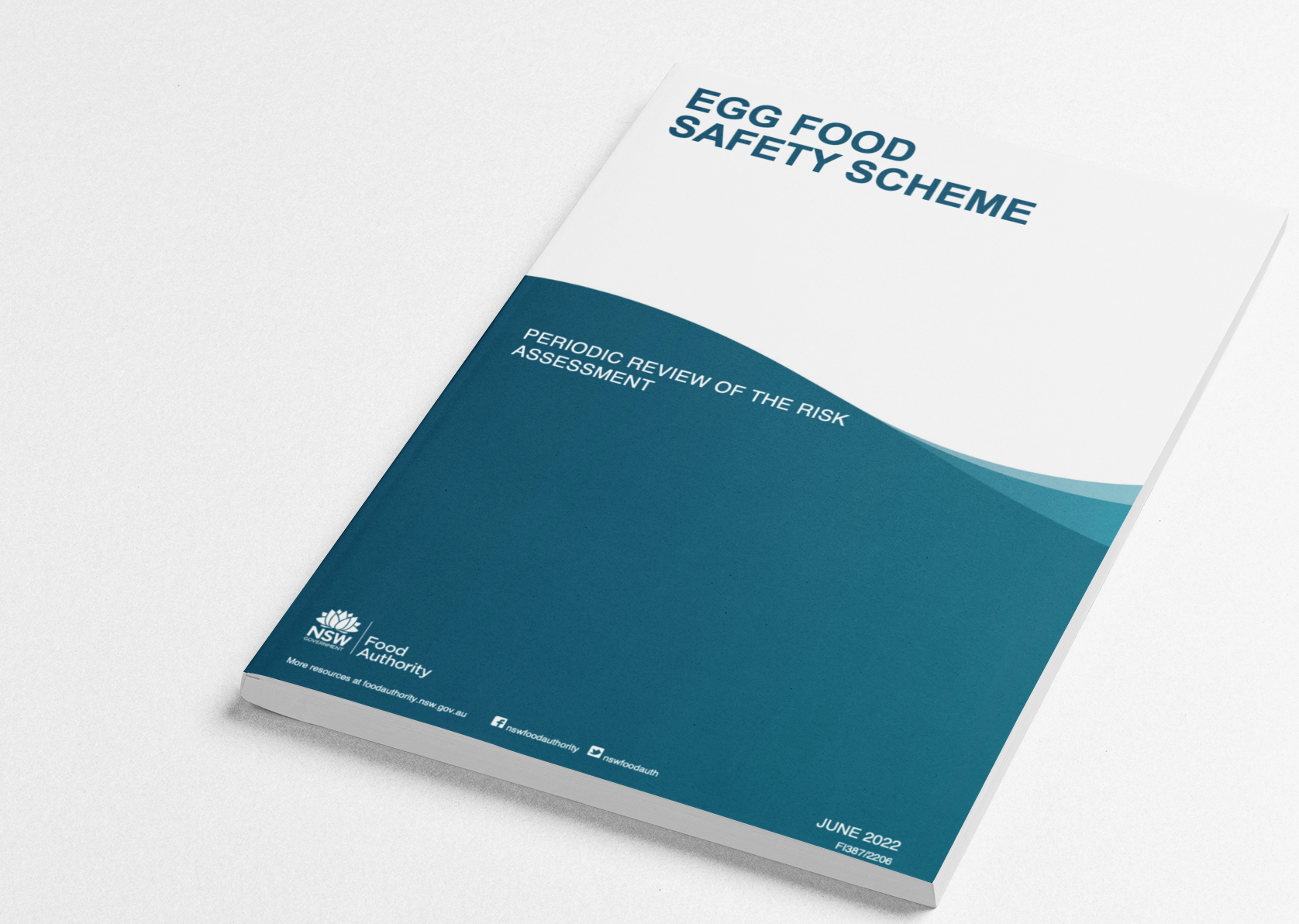
Salmonella Enteritidis Guide updated
The How to comply with the Biosecurity (Salmonella Enteritidis) Control Order 2020 (the Guide) has been updated to reflect the two-year extension of the Biosecurity (Salmonella Enteritidis) Control Order which is now due to expire on 30 June 2024.
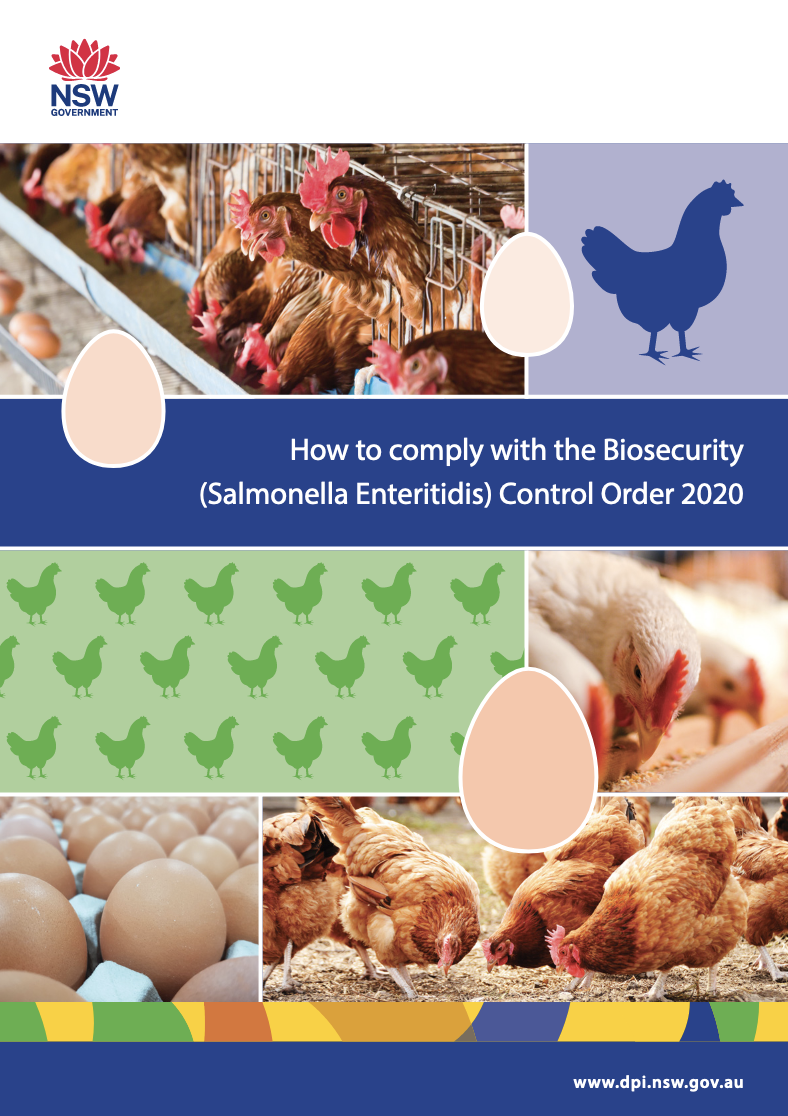
The Guide was designed to help all licensed egg and poultry producers (including grading and packing facilities), owners of 100 or more poultry and pullet rearers in NSW to comply with the Control Order.
There are no changes to the current advice and testing requirements, the changes reflect updated references only. We’ve also taken the opportunity to simplify instructions in the guide.
All producers are required to continue to comply with Control Order requirements, which will be checked by an authorised officer any time an audit or inspection is conducted.
Mandatory testing has been instrumental in limiting the spread of SE in NSW poultry, thereby reducing the number of human health cases. By extending the Control Order, NSW will continue to minimise the public health risk of Salmonella Enteritidis. From 1 July 2021 to 30 June 2022, a total of 325 samples were tested at EMAI and Birling Avian Laboratories (reference: Annual Testing Report 2021-2022 on the Food Authority website).
Samples collected by producers in accordance with the Control Order will continue to be tested for free when sent to EMAI or Birling Avian Laboratories.
You can access the updated Guide here - How to comply with the Biosecurity (Salmonella Enteritidis) Control Order 2020.
You can access the amended Control Oder here - Biosecurity (Salmonella Enteritidis) Control Order 2020 (as amended)
You can find more information on Salmonella Enteritidis on the DPI website.
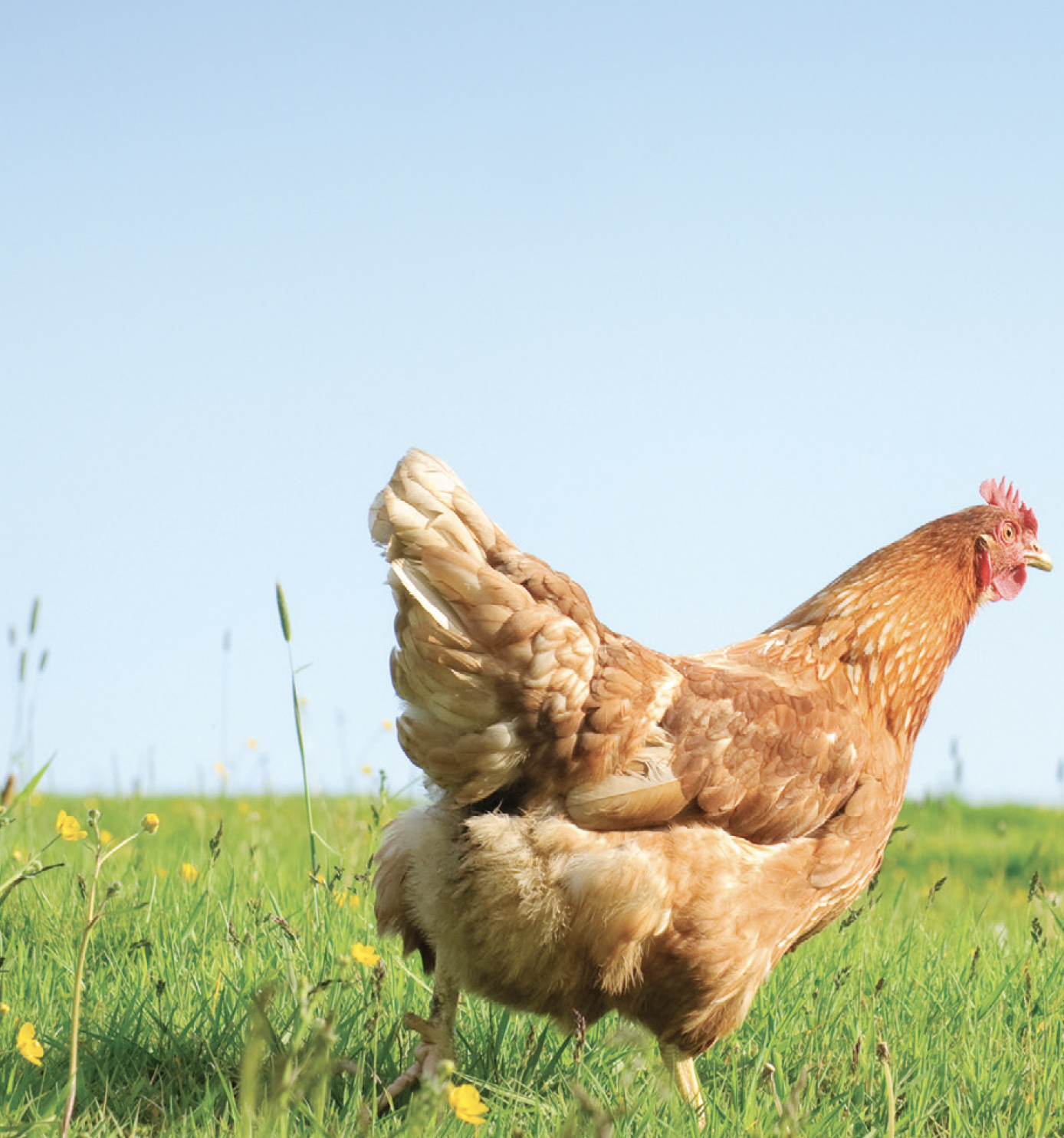
PLANTS
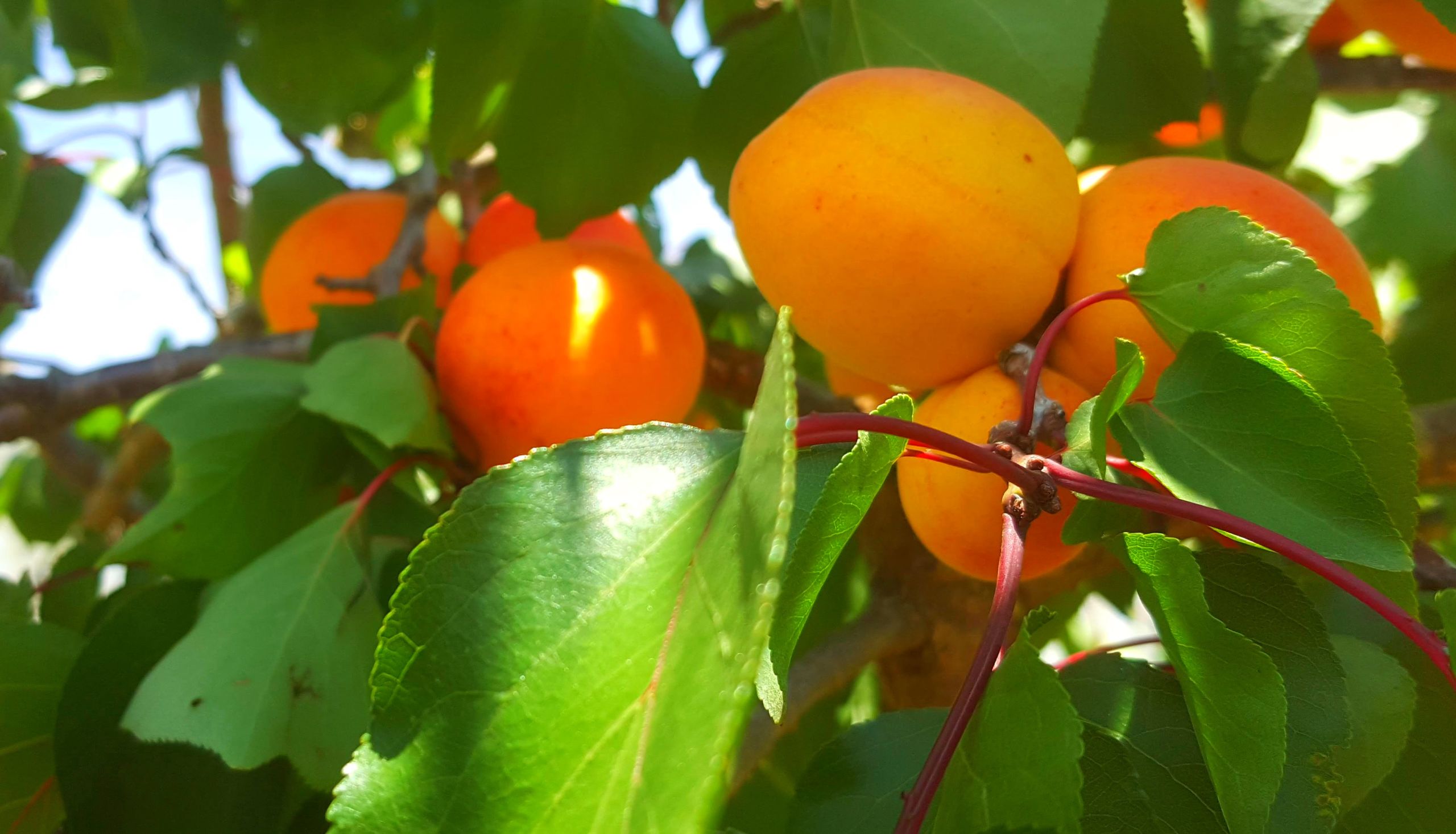
Inspections and audits
From July 2021 to June 2022, 153 audits and inspections were conducted on licensed plant product businesses. This industry sector has recorded a compliance rate of 93%.
The main areas where critical defects have been raised at audits continue to be with process control, analytical testing, and hygiene & sanitation. The Biosecurity & Food Safety Compliance team will be channelling their future resources and implementing targeted strategies including setting up of an education program to address these critical and high-risk issues and poor performers.
The below table shows yearly comparable data for compliance activity in the plant sector between reporting years 2020/21 and 2021/22.
| Reporting period | 2020/2021 | 2021/2022 |
|---|---|---|
| Audits and inspections | 167 | 153 |
| Compliance rate | 92% | 93% |
Three new horticulture standards introduced
On 12 August 2022, Food Ministers approved three new primary production and processing standards for berries, leafy vegetables and melons.
This followed an extensive review by Food Standards Australia New Zealand (FSANZ) under Proposal P1052 of food safety measures for the primary production and processing of berries, leafy vegetables and melons.
As a result of the review, three new standards have been included in the Australia New Zealand Food Standards Code:
- Standard 4.2.7 – Primary Production and Processing Standard for Berries and includes strawberries, blueberries, and berries from the genus Rubus
- Standard 4.2.8 – Primary Production and Processing Standard for Leafy Vegetables which means vegetables of a leafy nature where the leaf is consumed raw; and includes all lettuces, kale, chicory, watercress, swiss chard, Asian leafy greens (e.g. bok choy), all leafy herbs consumed raw (e.g. parsley, basil, coriander, dill, fennel leaves, mint, thyme, rosemary, oregano, marjoram, chives), spring onions, microgreens, all spinach leaves, silverbeet and cabbage
- Standard 4.2.9 – Primary Production and Processing Standard for Melons and includes watermelon, rockmelon, honeydew melon, and piel de sapo
The new nationally consistent standards aim to strengthen food safety management on-farm and during initial processing to reduce food safety risks along the horticulture supply chain from farm to fork.
The new standards have been added to Chapter 4 of the Food Standards Code, with a 30-month transition period for implementation, taking effect from 12 February 2025.
The NSW Food Authority is working with Food Standards Australia New Zealand and the Fresh Produce Safety Centre on educational materials and outreach for the industry.
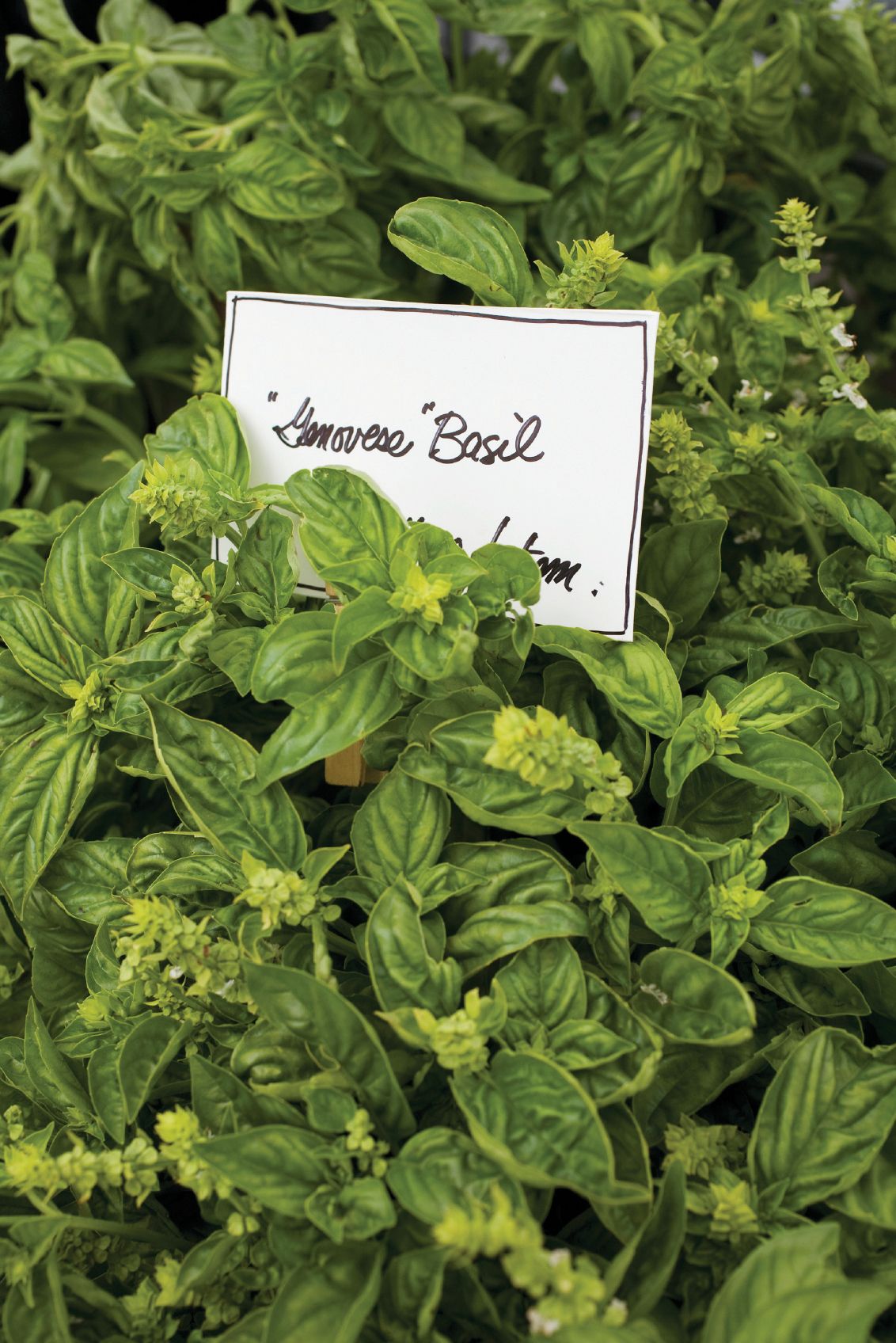
VULNERABLE PERSONS

Inspections and audits
From July 2021 to June 2022, 1,023 audits and inspections were conducted on licensed hospitals and aged care businesses. This industry sector has maintained a high compliance rate with 99% of businesses recording an acceptable result. This industry sector has maintained a high compliance rate for an extended period, due to the correct implementation of food safety controls and ensuring staff have the necessary skills and knowledge.
The below table shows yearly comparable data for compliance activity in the vulnerable persons sector between reporting years 2020/21 and 2021/22.
| Reporting period | 2020/2021 | 2021/2022 |
|---|---|---|
| Audits and inspections | 1,374 | 1,023 |
| Compliance rate | 99% | 99% |
MANUFACTURING

Changes to Health Star Rating system – reminder
Following the five year review of the Health Star Ratings system, a number of changes have been recommended to make it easier for consumers to read Health Star Ratings and choose healthier packaged foods.
The Health Star Rating (HSR) is a front-of-pack labelling system that rates the overall nutrition profile of packaged foods with a rating from ½ a star to 5 stars. It provides a quick, easy and standardised way for consumers to compare similar packaged foods. The more stars, the healthier the choice.
While the use of the HSR is voluntary, manufacturers who use HSR are required to comply with changes outlined in recommendations from the five-year review.
These are due to come into effect by 14 November 2022. However, for products with a shelf life of 12 months or longer, a stock-in-trade provision of a further 12 months will be permitted.
Key to these changes are:
- the permitted HSR logos–energy-only icon is no longer permitted
- automatic Health Star Ratings –new advice for specific products
- the Health Star Ratings calculator–total sodium and sugars will be penalised more strongly and dairy categories have been refined
If you use a HSR on your packaging this means by 14 November 2022 you must:
- Remove the energy-only icon from products and replace with a permitted HSR graphic
- Determine whether your products have changed categories
- Re-run products through the revised HSR calculator to see if existing HSR labels need to be updated.
For more information on the HSR system and recent changes, visit healthstarrating.gov.au
For information on how to categorise and calculate an HSR, access the Health Star Rating system Calculator and Style Guide.
Questions about the Guide and use of the HSR graphic can be directed to the Front-of-Pack Labelling Secretariat. Email frontofpack@health.gov.au or call 1800 099 658.

Health Star Ratings are applied using a strict calculation.
Health Star Ratings are applied using a strict calculation.

Health Star Ratings are the easy way to compare similar packaged foods.
Health Star Ratings are the easy way to compare similar packaged foods.
Lupin Survey
In May 2017, Lupin was added to Standard 1.2.3 of the Australia New Zealand Food Standards Code which specifies the mandatory declaration of certain foods or substance in food including allergens. This means that in order to comply with food labelling requirements, lupin must be declared if present as a food ingredient.
Since that time, there has been an increase in the number and range of commercially available lupin-based products, largely as a result of an increase in food products marketed as health alternatives, and innovative foods.
Consumers with food allergies rely on food labels to disclose the presence of intentionally included allergenic ingredients. However, undeclared allergens can be inadvertently introduced into a food via cross-contact during manufacturing, and a number of other avenues including insufficient or ineffective equipment cleaning and/or sanitation procedures.
A significant concern with lupin is the potential for people with allergies to other legumes, such as peanuts, to also be allergic to lupin.
While there has been no product recalled in Australia due to the presence of lupin, there have been three product recalls carried out overseas due to undeclared lupin or improperly labelled declarations but could potentially have been higher as it was suspected that lupin was not routinely tested in food recall investigations.
A targeted survey was conducted in September to December 2020 to gather information on the level of lupin in foods and to assess the compliance in the industry after Standard 1.2.3 was updated. Labels on the sampled products were also assessed for compliance with Part 1.2 of the Code.
A total of 123 products were purchased and tested for the level of lupin, and included flours, dry pasta, baked goods and sauces. All samples were found to be compliant, meaning they did not contain lupin at a level that would require declaration.
To access the full report, including the results and recommendations, read the Lupin Survey on the Food Authority website.
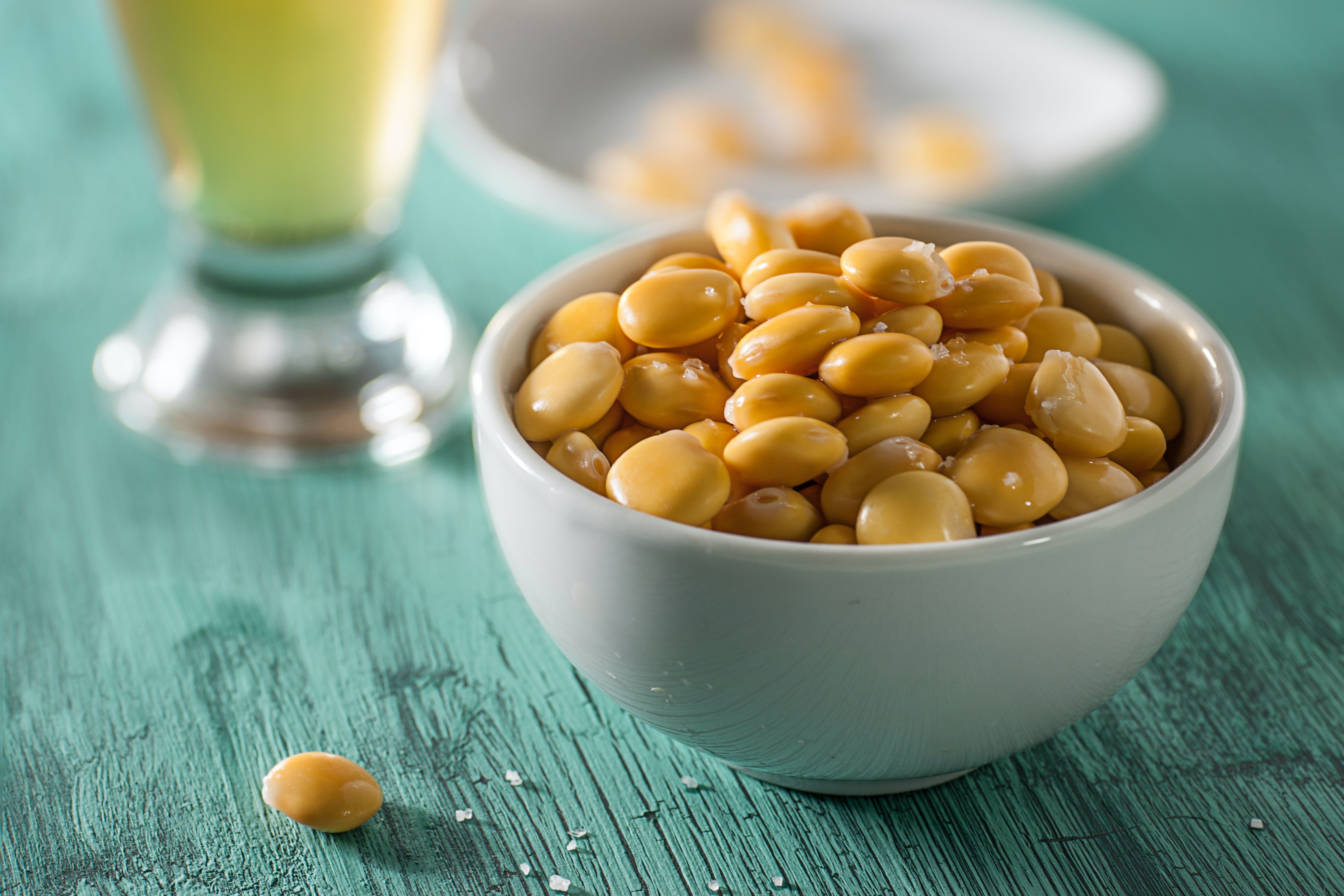
CALENDAR ITEMS
Foodservice Australia 2022
23-25 October 2022 (E52: NSW Food Authority stand)
The VET Expo 2022
26 & 27 October 2022 (B44: NSW DPI stand)
Retail and Food Service Information sessions (NSW Food Regulation Partnership)
- Tuesday 18 October – Argenton (hosted by Lake Macquarie City Council)
- Wednesday 19 October – Cessnock (hosted by Cessnock City Council)
- Thursday 20 October – Nelson Bay (hosted by Port Stephens Council)
NEW & UPDATED RESOURCES
- Annual Food Testing Report 2021-2022 – new
- Egg Food Safety Scheme: Periodic Review of the Risk Assessment – updated (risk assessment)
- How to comply with the Biosecurity (Salmonella Enteritidis) Control Order 2020 – updated (Guide)
- Lupin Survey - new





